Thank you to all speakers, sponsors, partners & delegates who joined us. We look forward to seeing you at the 2026 edition. In the meantime, should you wish to find out more about speaking and sponsorship opportunities at next year’s event, please contact anne-lise.simon@forum-global.com
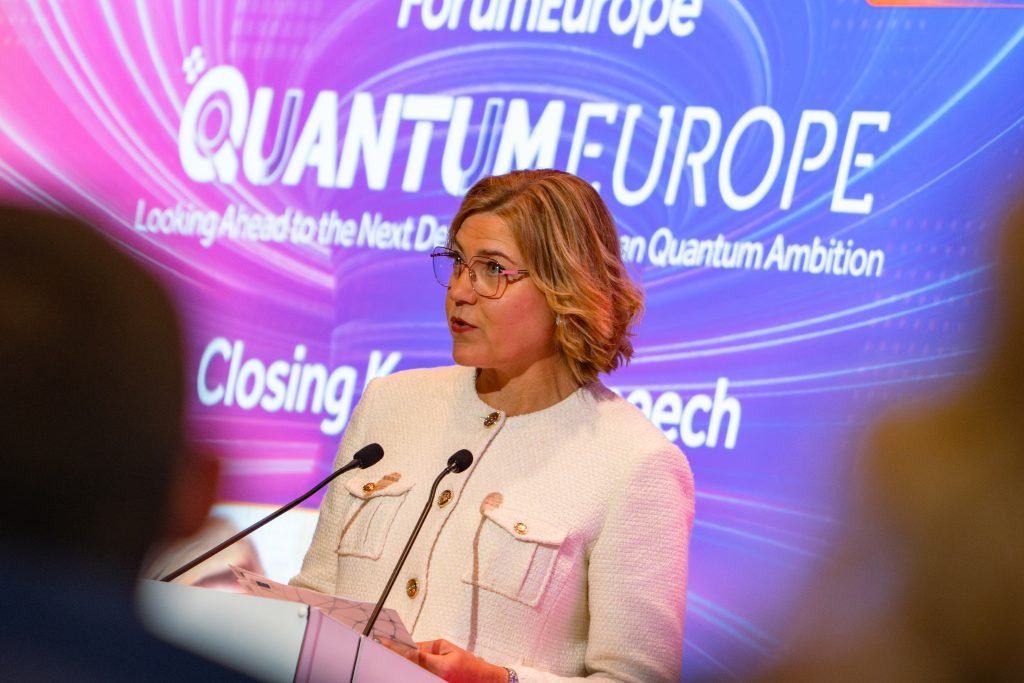
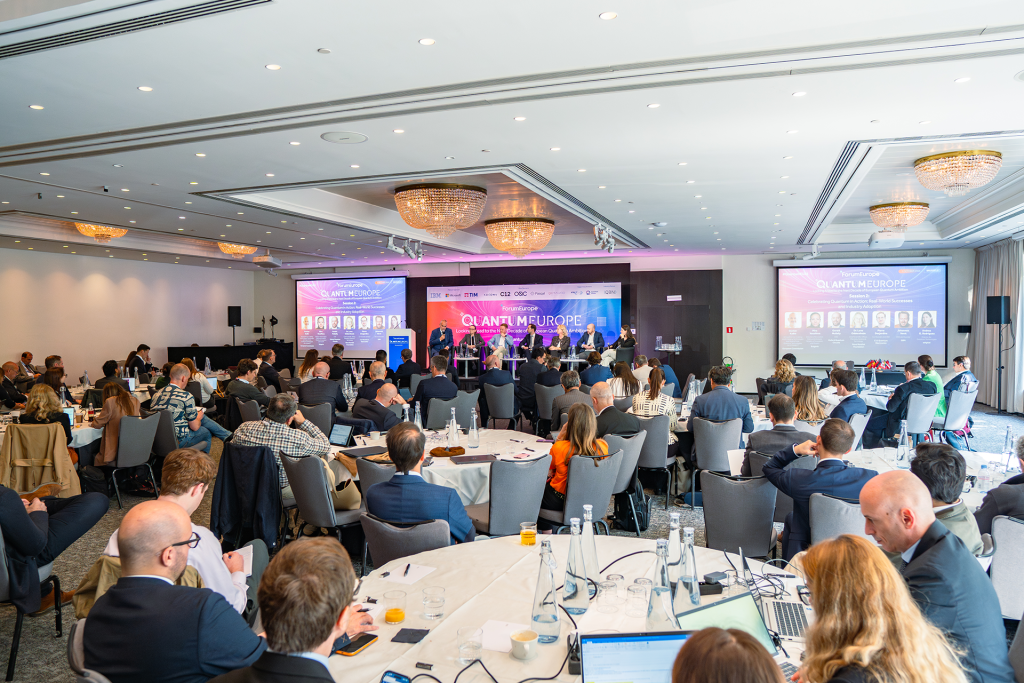
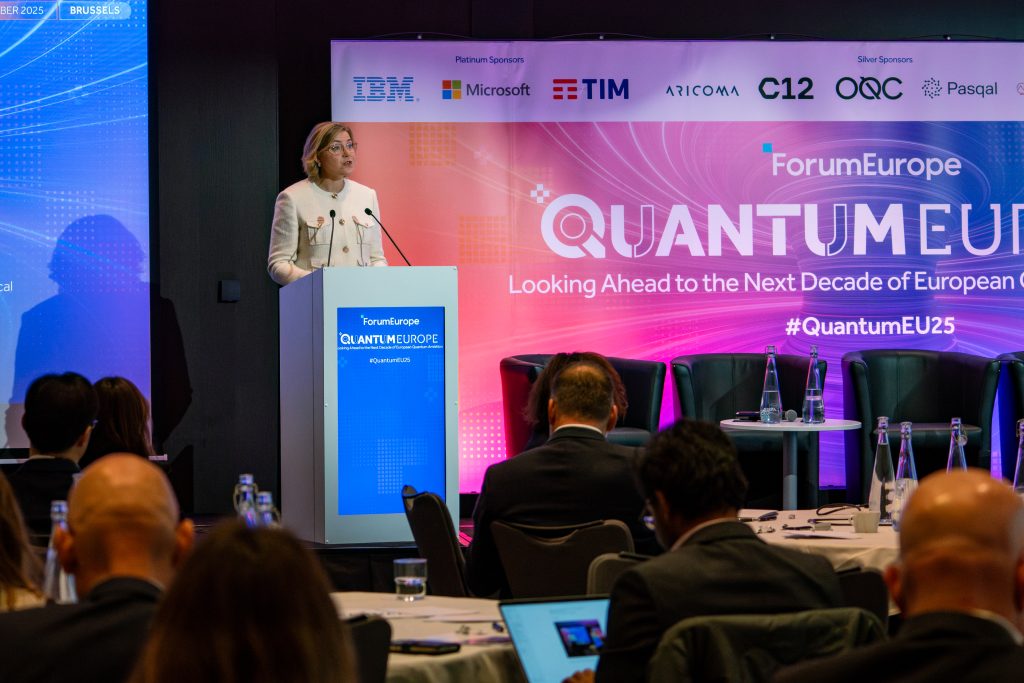
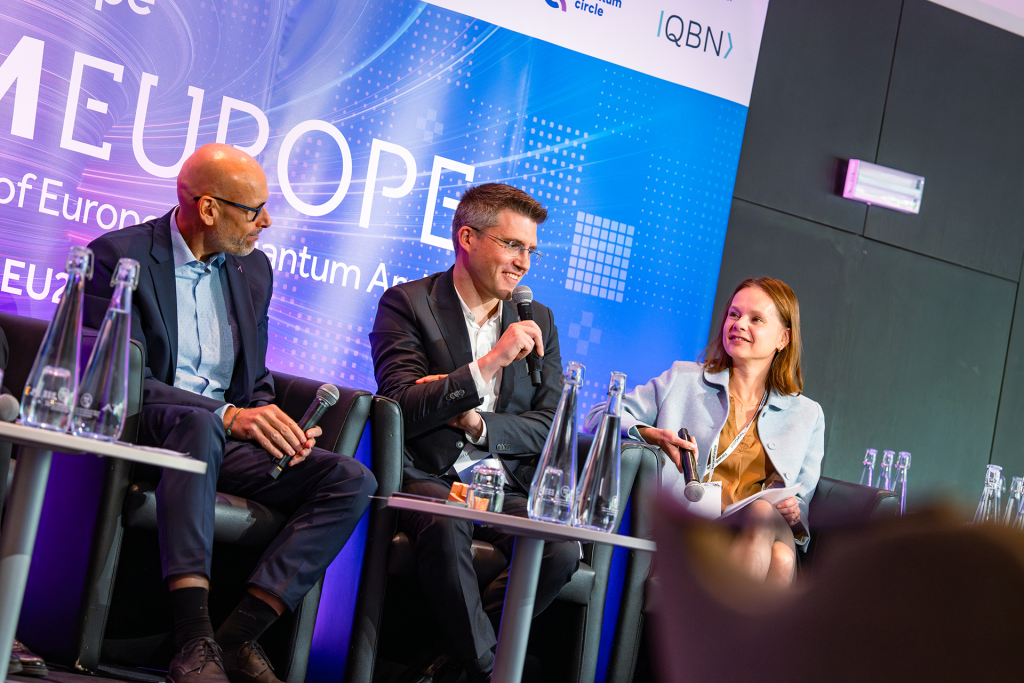
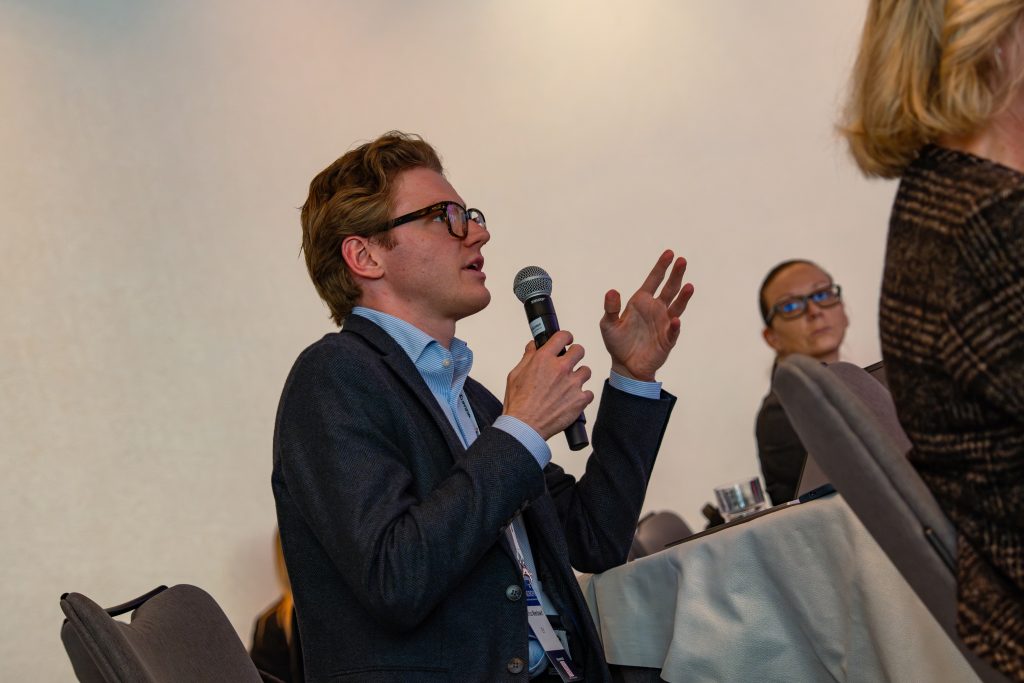
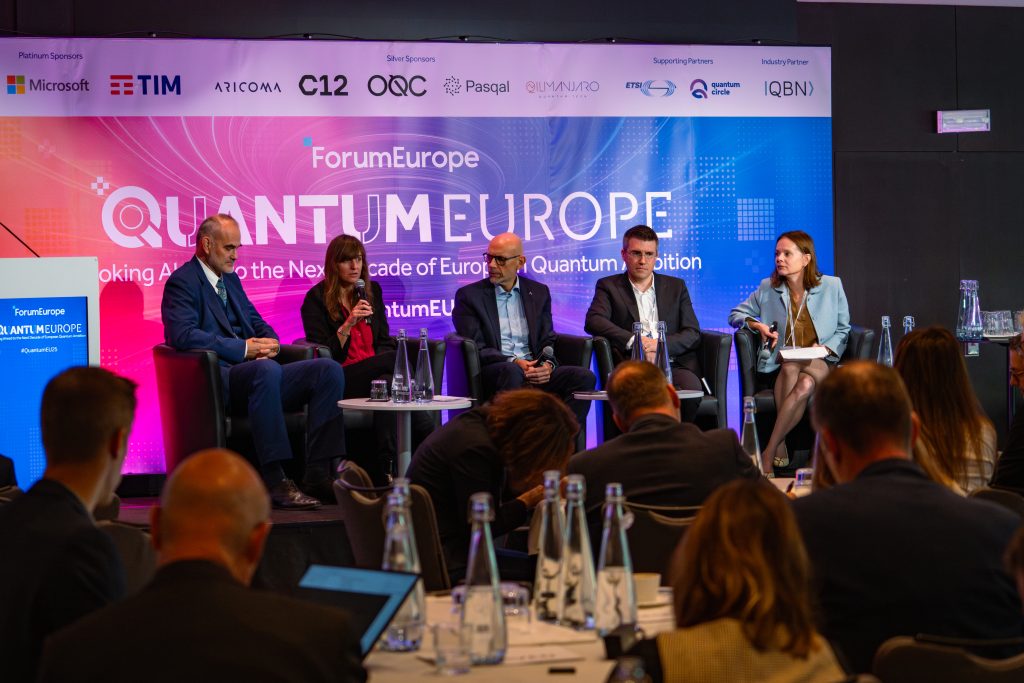
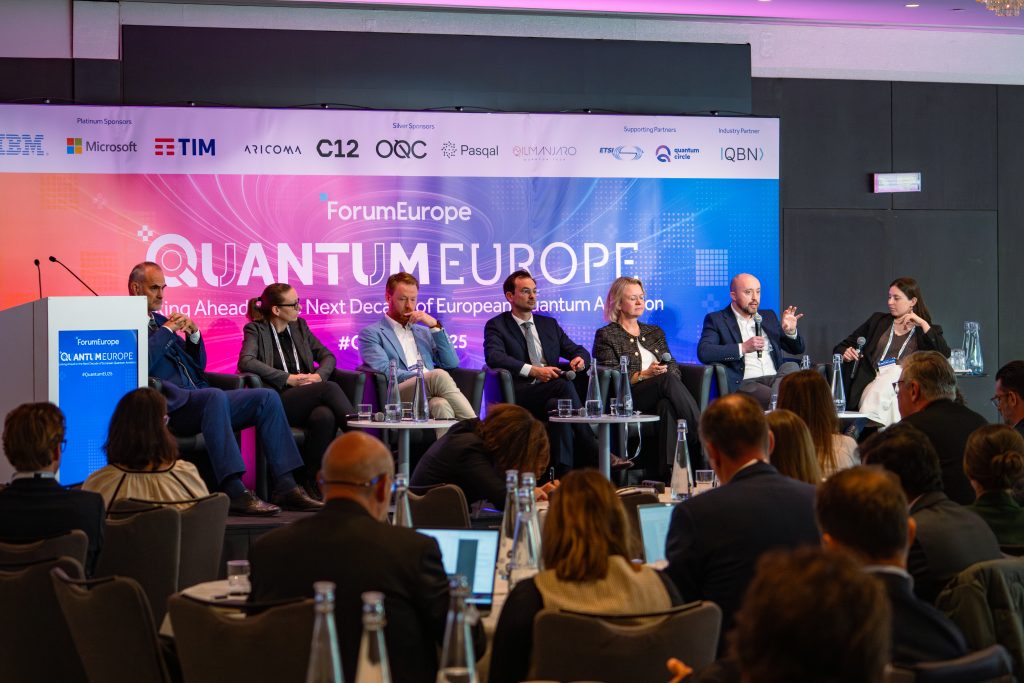
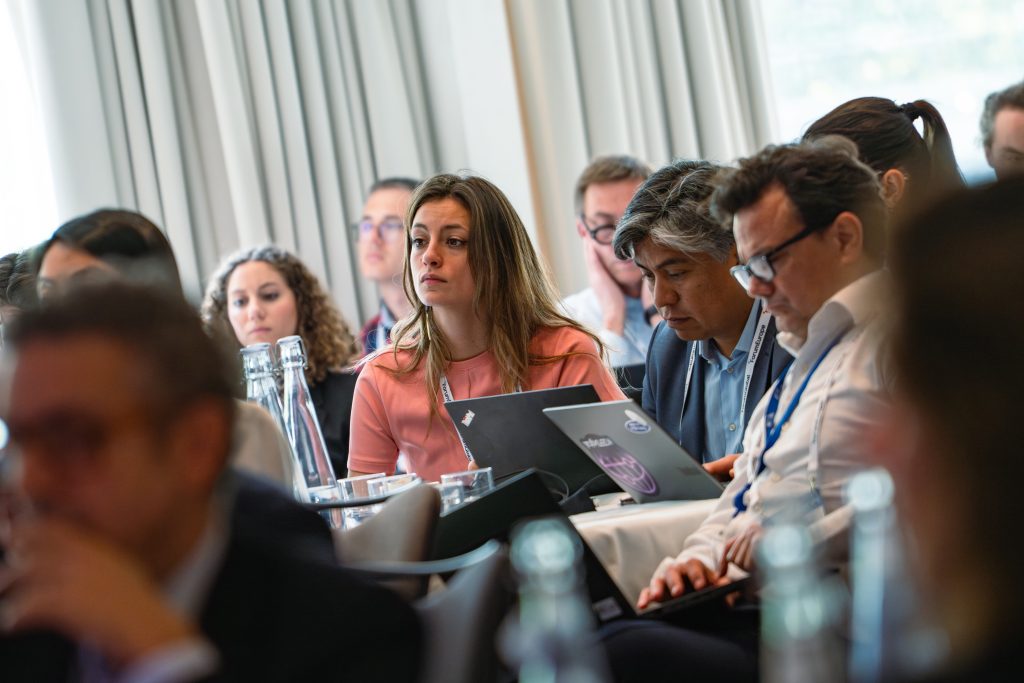
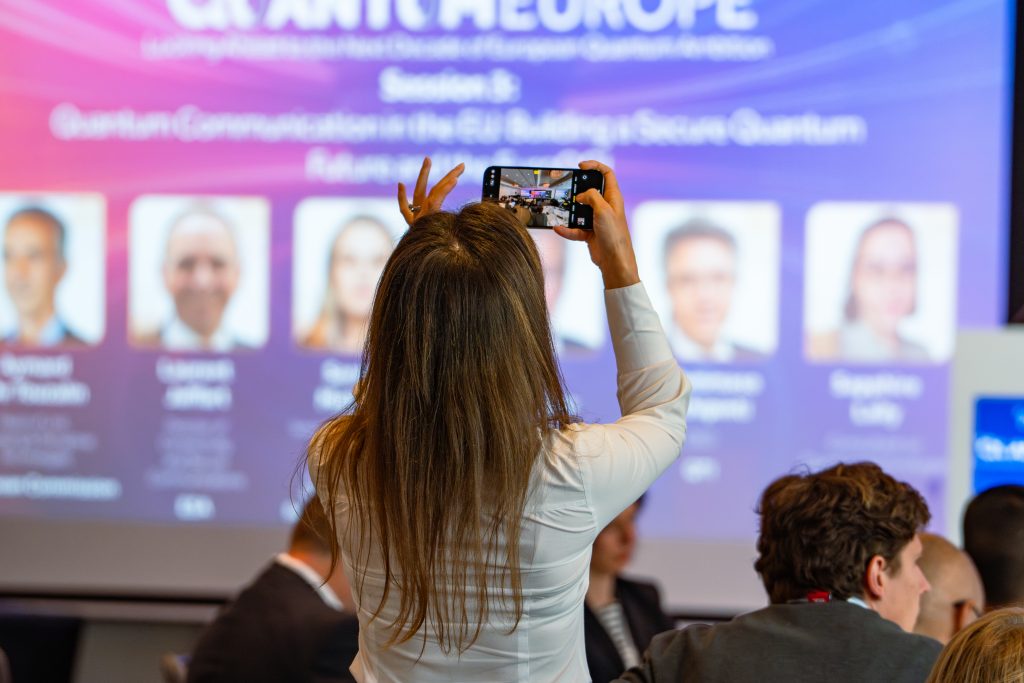
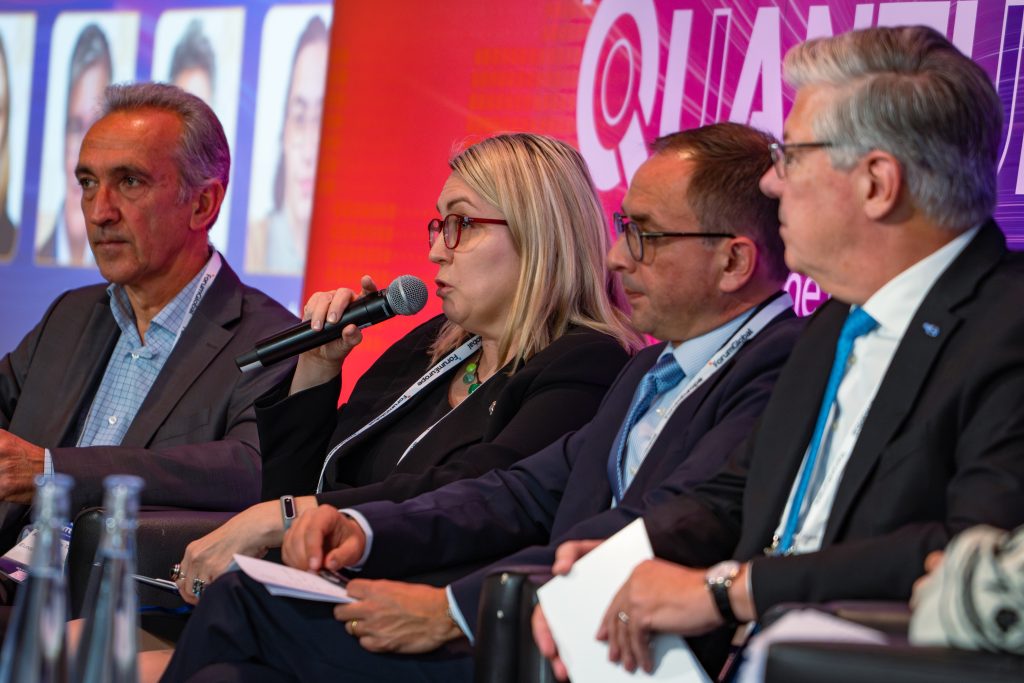
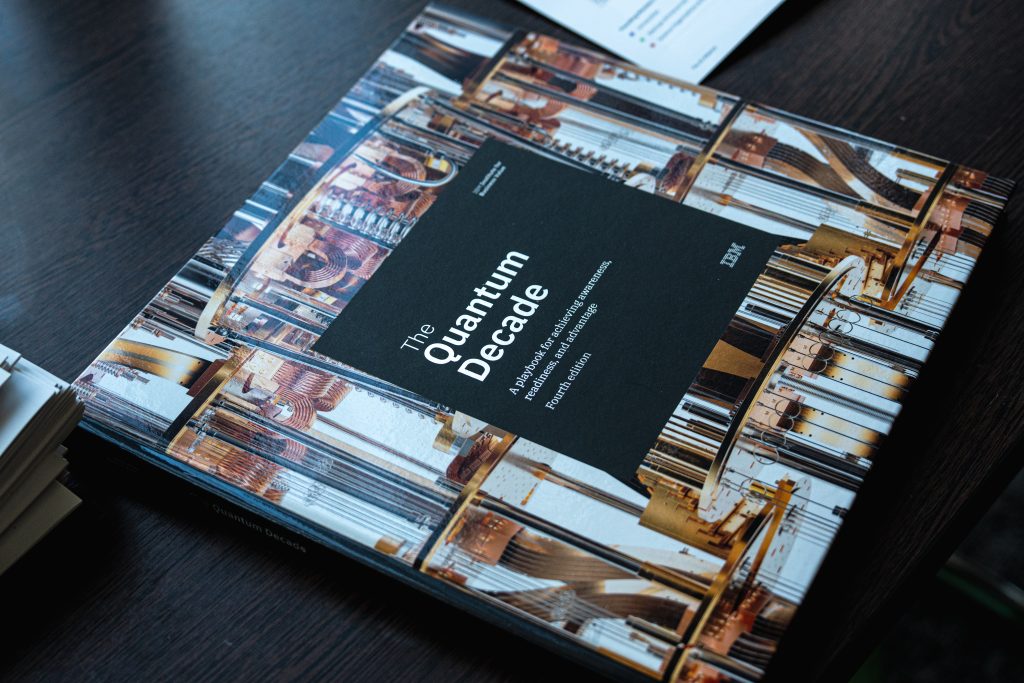
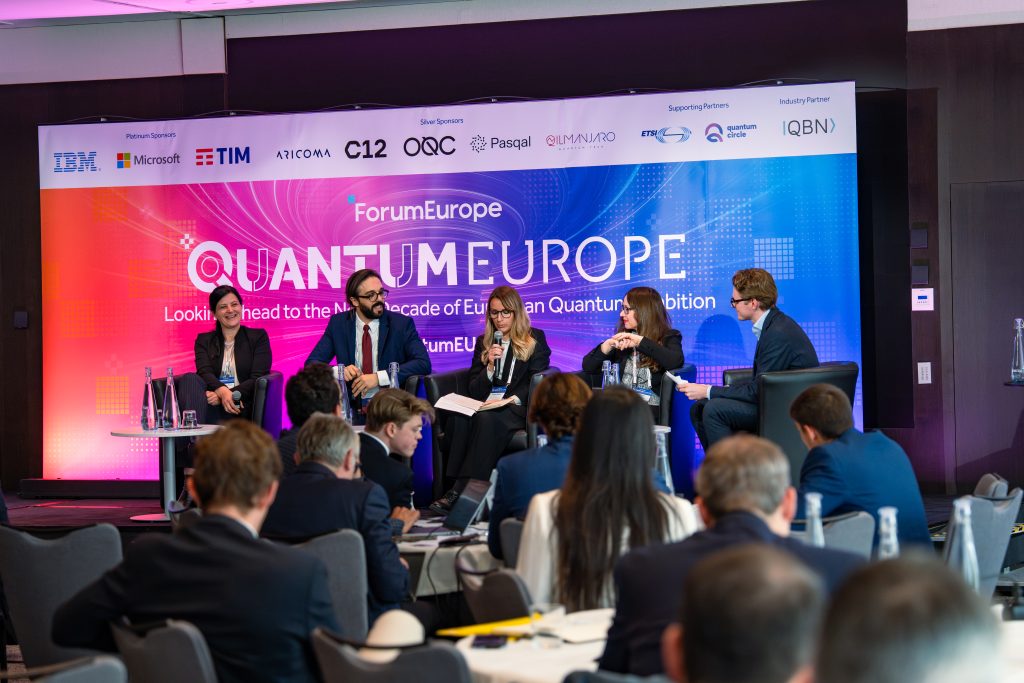
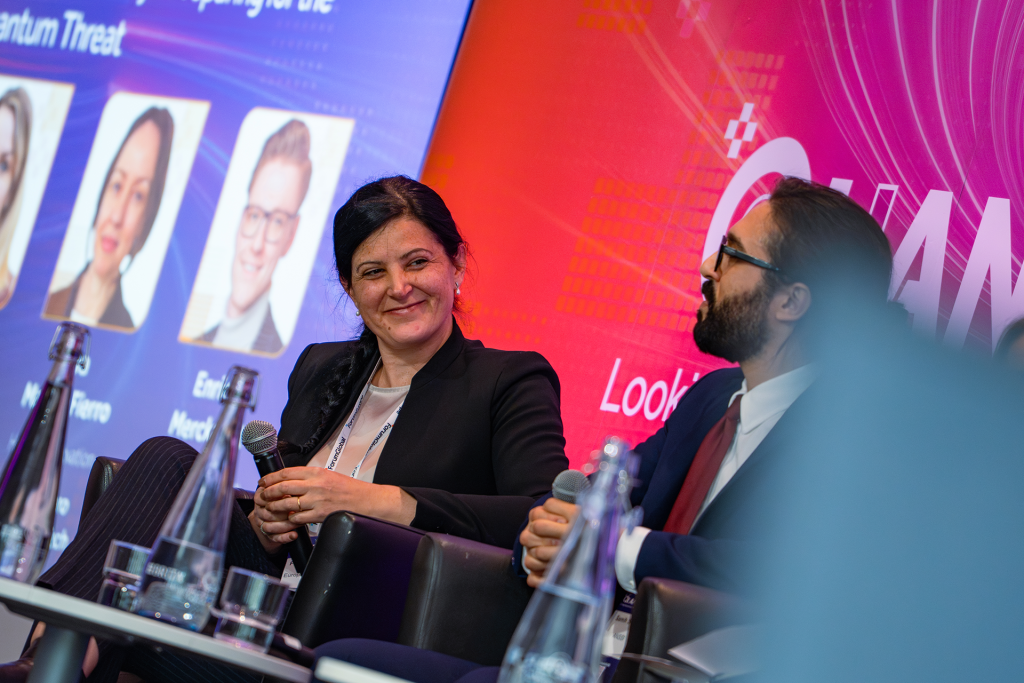
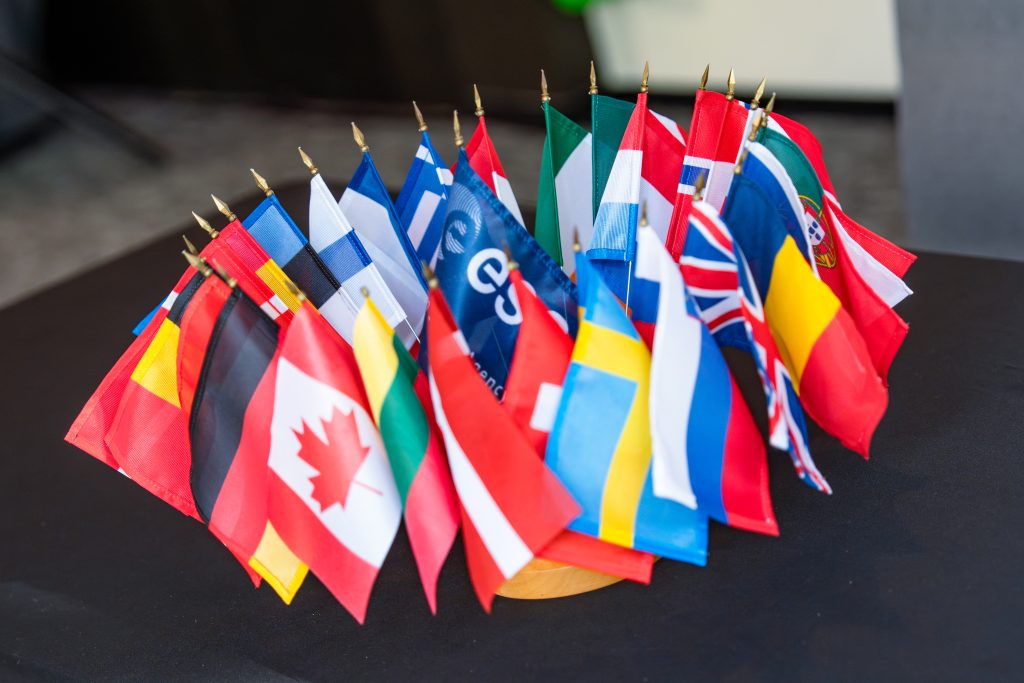
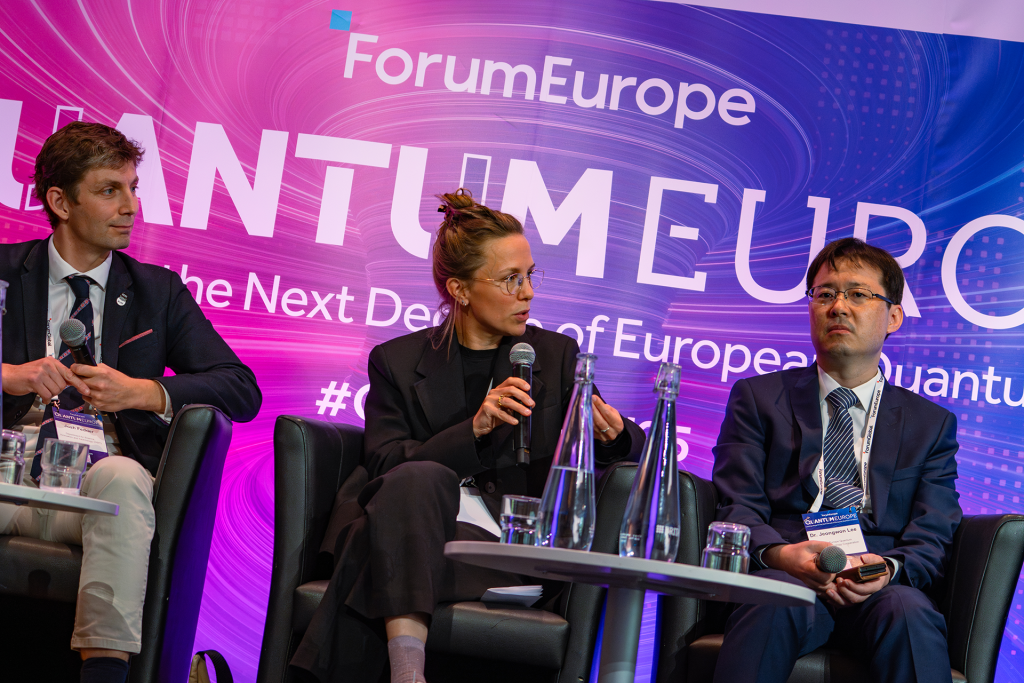
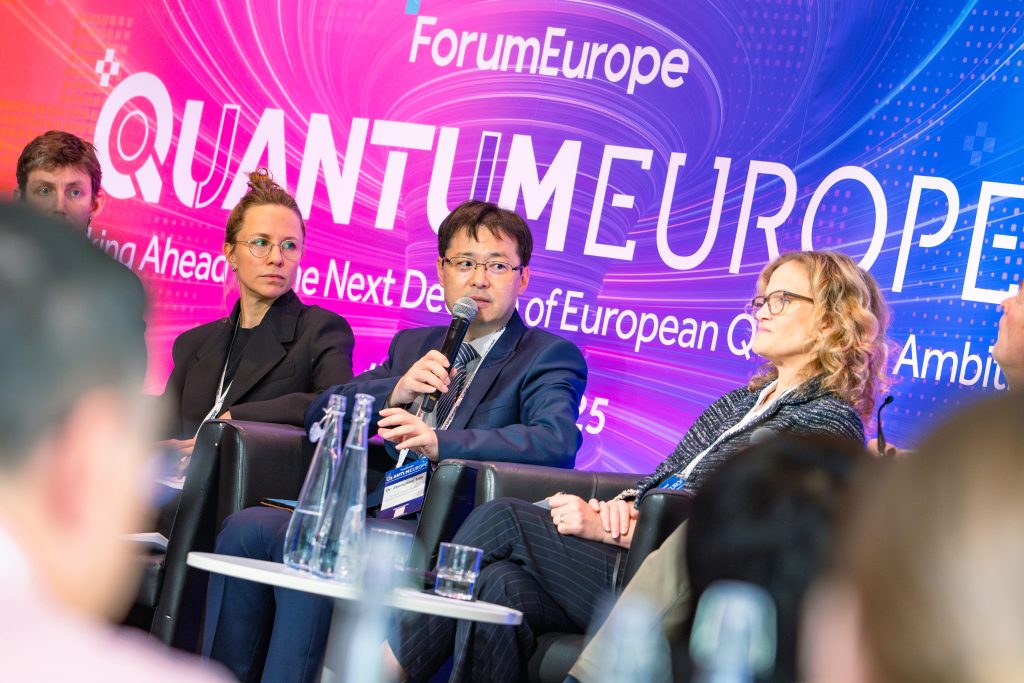
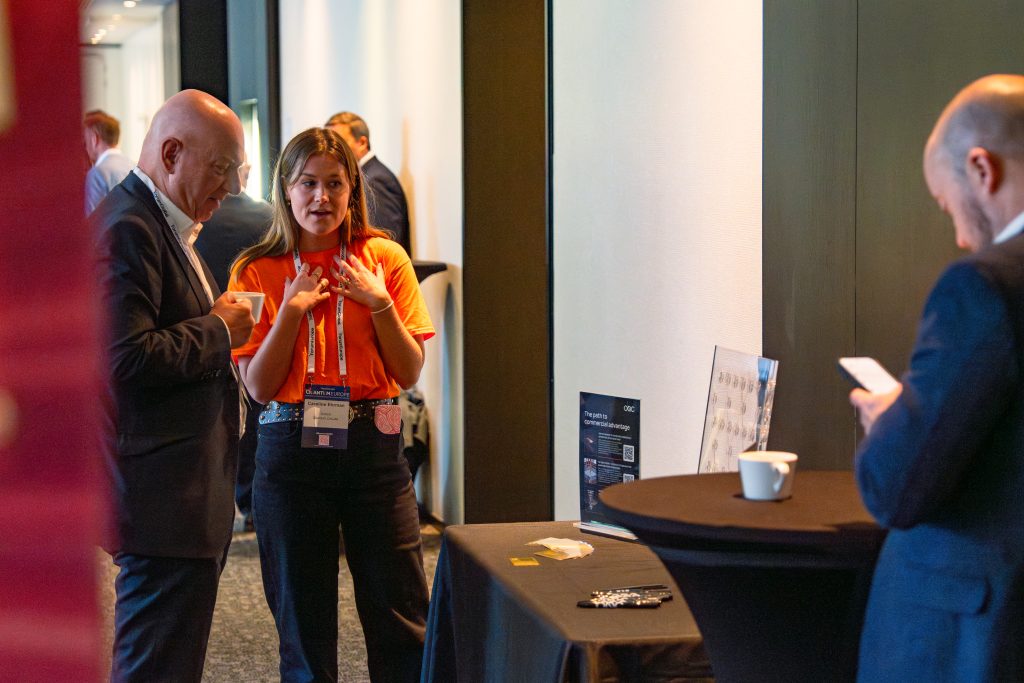
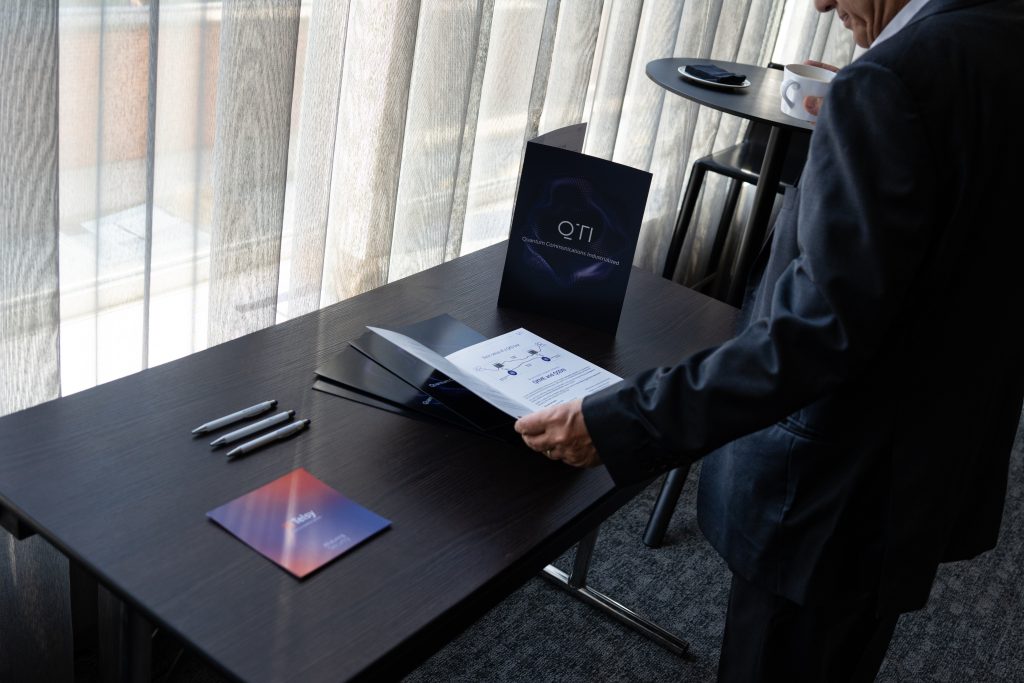
Held at a pivotal time for European quantum policy, Quantum Europe 2025 built significantly on the success of its inaugural edition, establishing itself as a cornerstone in Europe’s quantum and digital calendar. With over 200 participants representing institutions, academia, industry, and government from across the continent and beyond, the conference provided a vital space for strategic dialogue, knowledge exchange, and cross-sector collaboration.
Throughout the day, discussions spanned critical areas including the emerging Quantum Act and its place in Europe’s legislative landscape, investment and infrastructure strategies to build Europe’s quantum leadership, talent pipelines and skills development across member states, international cooperation in the context of global competition, the EuroQCI and the future of quantum communication in Europe and Cybersecurity in the quantum age.
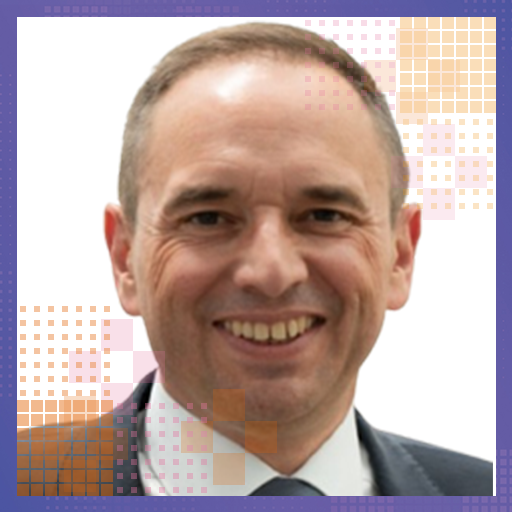
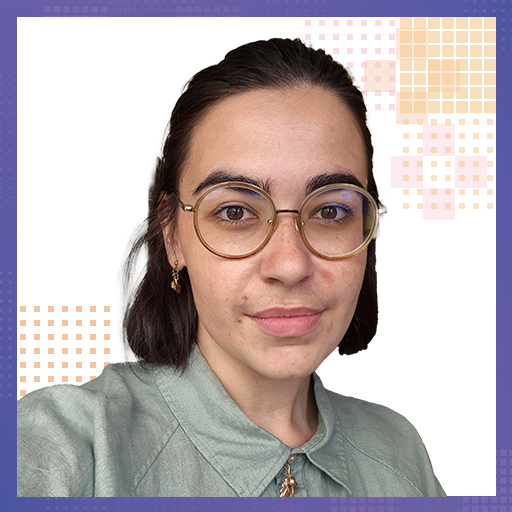
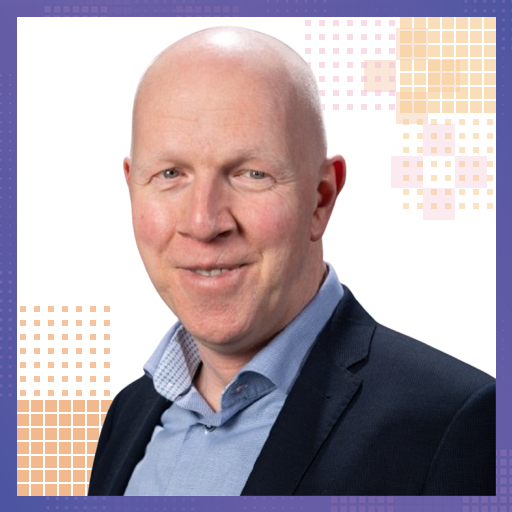
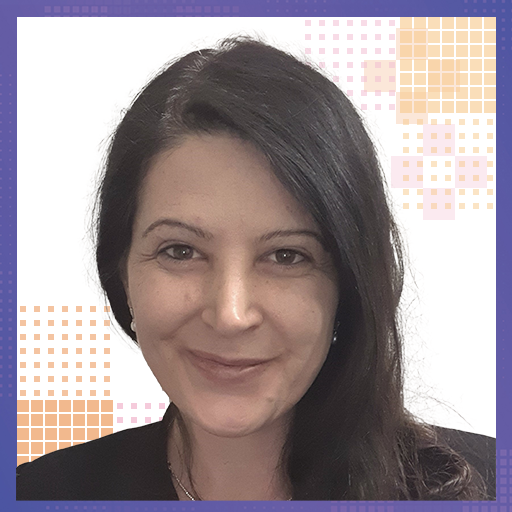
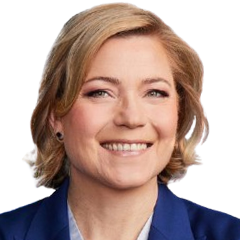
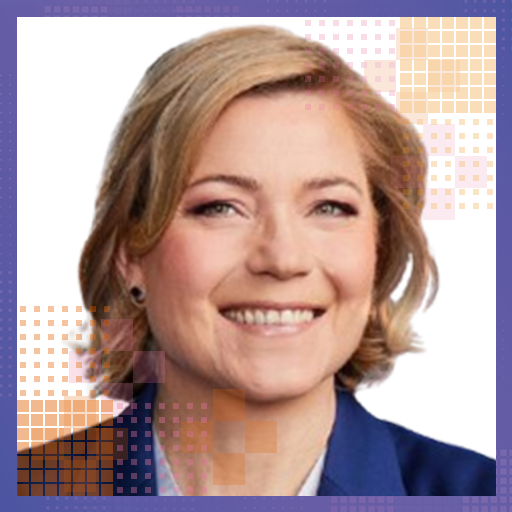 Henna Virkkunen,
Henna Virkkunen, As Executive Vice-President for Tech Sovereignty, Security and Democracy, Henna Virkkunen is tasked with combatting the increasingly complex security threats facing the EU, whilst at the same time strengthening our external borders and our internal security. This goes hand in hand with her responsibility to ensure our freedoms, justice and democracy are strengthened too.
Executive Vice-President for Technological Sovereignty, Security and Democracy
European Commission

 Marc Lemaître, Director-General, Directorate General for Research and innovation, European Commission
Marc Lemaître, Director-General, Directorate General for Research and innovation, European Commission Mr Marc Lemaître is Director-General for Research and Innovation (DG RTD) since February 2023. He has extensive management experience at the European Commission as Director-General for Regional and Urban Policy (DG REGIO) from 2016 to January 2023, Director of the Office for Administration and Payment of individual entitlements (PMO) between 2013 and 2016, and previously Head of the Cabinets of the Commissioners responsible for Budget (2010 – 2013), and Regional Policy (2007 – 2010).
Before joining the Commission, he worked in the Permanent Representation of Luxembourg to the European Union, dealing with budgetary, trade and general affairs issues (1996 -2006).
Marc Lemaître studied at the Université Libre de Bruxelles (ULB), College of Europe in Bruges, and holds a Masters in European Economics.
Director-General, Directorate General for Research and innovation
European Commission
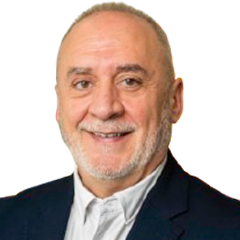
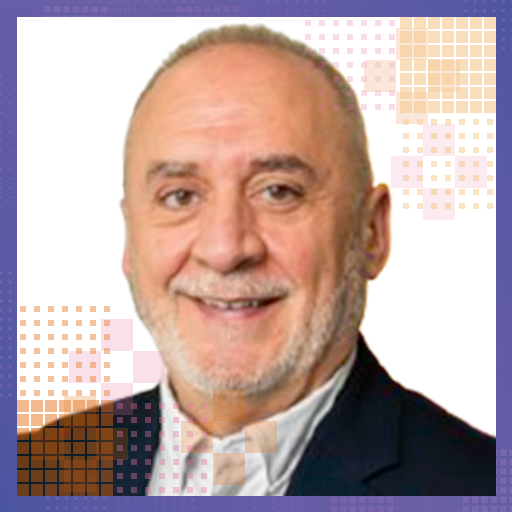 Juan Cruz Cigudosa,
Juan Cruz Cigudosa, As the head of the Secretariat of State for Science, Innovation, and Universities, Juan Cruz Cigudosa is responsible for overseeing the department’s competencies in science, innovation, and universities, as well as for developing policies related to these areas (Royal Decree 472/2024, of May 7, establishing the basic organizational structure of the Ministry of Science, Innovation, and Universities).
Juan has held various positions in the Government of Navarra, including Minister of University, Innovation, and Digital Transformation, as well as Minister of Economy and Finance.
He holds a PhD in Biological Sciences from the University of Navarra and has focused his research career on Human Genetics and its relationship with cancer and rare diseases since 1987. He has completed predoctoral and postdoctoral research stays in Lund (Sweden), Manchester (United Kingdom), and New York (USA). Additionally, he served as an associate specialist in the Canary Islands Health Service from 1997 to 2000.
Juan was Director of the Molecular Cytogenetics Group at the Spanish National Cancer Research Center (CNIO) from 2001 to 2017 and the founder and Chief Scientific and Innovation Officer at NIMGenetics, a Genomic Biotechnology company, from 2017 to 2019. He is also an honorary professor at both the Autonomous University of Madrid and the Complutense University of Madrid.
Juan has published over 170 articles in international scientific journals, has led national and international competitive research projects, and has supervised 12 doctoral theses. He has also been awarded the Best Young Researcher in Human Genetics Prize (1999), the Honorary Plaque of the Spanish Association of Scientists (2000), and the Academic Talent Award from Cinco Días newspaper (2013).
Secretary of State for Science, Innovation and Universities
Government of Spain
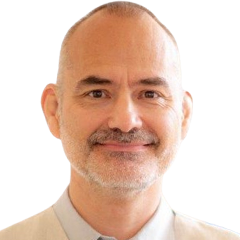
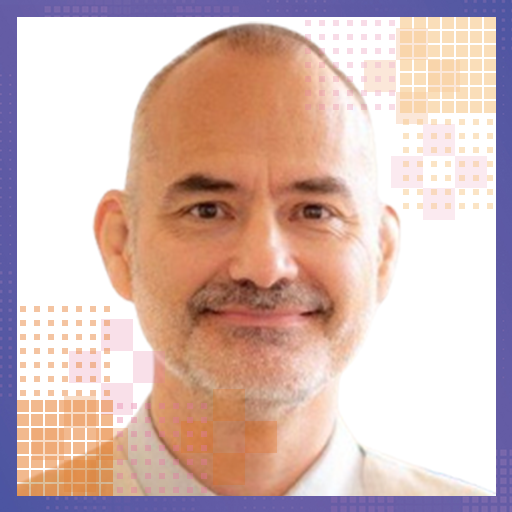 Gustav Kalbe,
Gustav Kalbe, Dr. Gustav Kalbe holds a PhD in Physics.
In 1998 he joined the Directorate General Information Society & Media of the European Commission. Over the years he had several assignments in quantum technologies, photonics, and cybersecurity.
In 2014 Gustav Kalbe became HoU for Administration & Finance in the European Commission, in DG Connect. In 2016 he was appointed HoU of the newly created High Performance Computing and Quantum Technology unit in DG Connect.
In 2018 he became responsible for the establishment and operation of the European High Performance Computing Joint Undertaking. He occupied the post of Interim Executive Director of the JU until its autonomy by the end of 2020.
In January 2021, he was appointed Deputy to the Director of DG Connect C “Digital Excellence and Science Infrastructure”.
Since May 2022 Gustav is the Acting Director of DG Connect C “Emerging and Enabling Technologies”.
Acting Director, Enabling and Emerging Technologies and Head of Unit, Quantum Technologies, DG CONNECT
European Commission
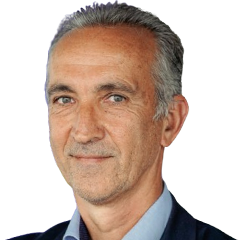
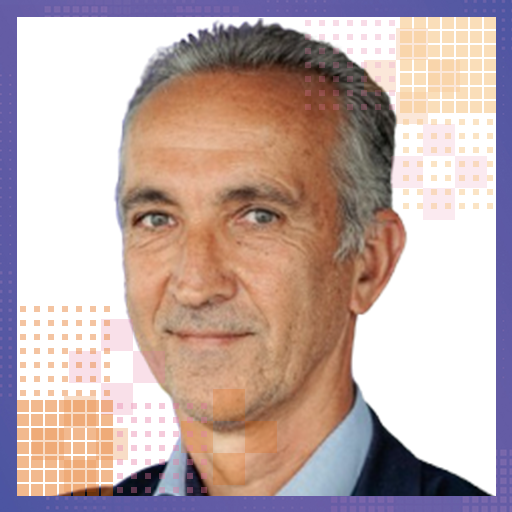 Aymard De Touzalin,
Aymard De Touzalin, Bio to follow.
Head of Unit, Emerging & Disruptive Technologies
European Commission
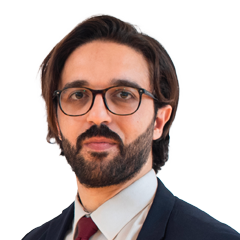
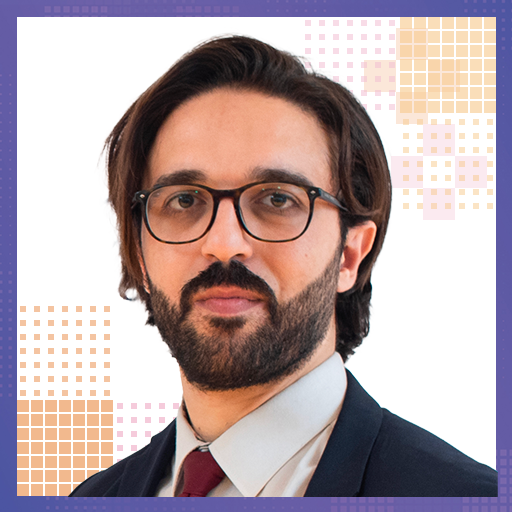 Samih Souissi, Chief of Staff - Expertise Department, ANSSI
Samih Souissi, Chief of Staff - Expertise Department, ANSSI Samih Souissi is currently the Chief of Staff of the Expertise Department of the French National Cybersecurity Agency (ANSSI). He leads ANSSI’s work on the transition to post-quantum cryptography (PQC).
Before joining ANSSI, he was a policy officer at the French telecom regulator (Arcep) focusing on Open Internet issues. Prior to that, he worked as a cybersecurity consultant and a research engineer.
Besides, he is actively engaged with the internet governance and cybersecurity community, serving on the scientific council of Afnic (the French NIC) and the scientific committee of Internet Society France.
Samih holds a MSc in engineering and a PhD in computer science and networks with a focus on cybersecurity from Telecom Paris. He is also a graduate of University of London-LSE in international relations.
Chief of Staff - Expertise Department
ANSSI
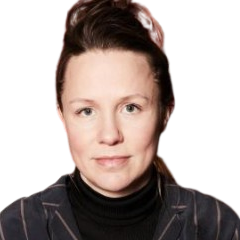
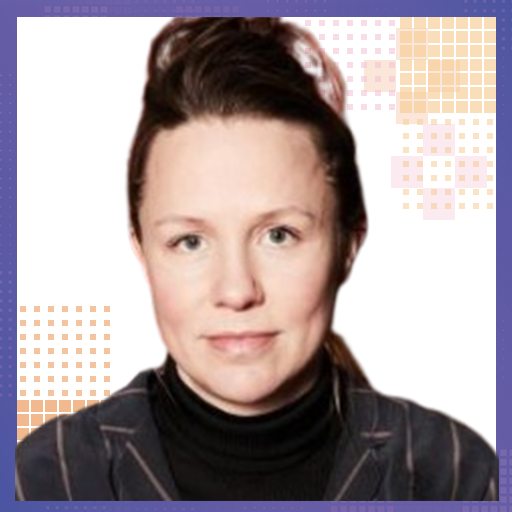 Sofie Lindskov Hansen, Senior Quantum Advisor, Ministry of Foreign Affairs, Denmark
Sofie Lindskov Hansen, Senior Quantum Advisor, Ministry of Foreign Affairs, Denmark Sofie Lindskov Hansen is Chief Quantum Expert in Denmark’s Office of the Tech Ambassador at the Ministry of Foreign Affairs. She holds a PhD in quantum physics from the Niels Bohr Institute and a medical physics degree from Rigshospitalet. Her career spans academia and industry—including R&D in nanophotonic quantum optics and roles at Sparrow Quantum and Kvantify—bridging deep science with real-world applications.
At the MFA, Sofie helps connect Denmark’s research strengths with allies and industry through the International Quantum Hub and supports Denmark’s quantum-specific MoUs with the United States (2022), the United Kingdom (2024), and Japan (2025). She also serves on the CEPS advisory board guiding Europe’s transition to a quantum-safe world. Her scientific background includes peer-reviewed work on integrated quantum photonics—such as single-photon routing in photonic circuits and waveguide-QED nonlinearity—and a doctoral thesis on single-photon manipulation in nanophotonic circuits.
Senior Quantum Advisor
Ministry of Foreign Affairs, Denmark
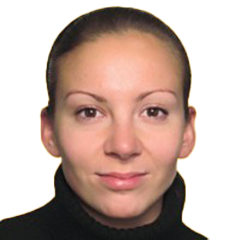
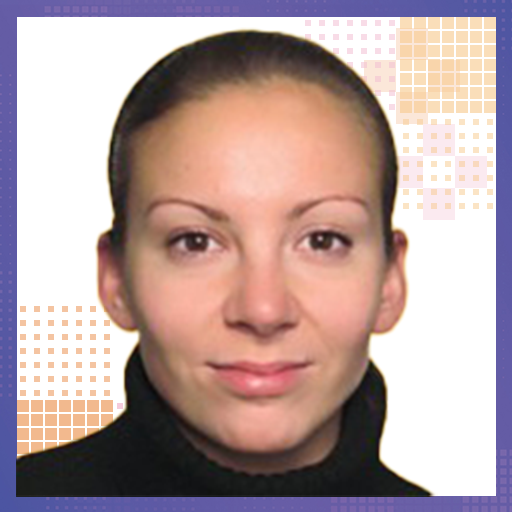 Mira Yossifova, Director of Innovation Policy and Analysis, Ministry of Innovation and Growth, Bulgaria
Mira Yossifova, Director of Innovation Policy and Analysis, Ministry of Innovation and Growth, Bulgaria Mira Yossifova is a Bulgarian futurist and innovation policy expert who has dedicated nearly two decades to transforming strategic foresight into actionable government policies. Currently serving as the Director of Policy and Analysis at the Ministry of Innovation and Growth of Bulgaria, she stands at the intersection of technology, innovation, and strategic planning in shaping the country’s future.
With over 18 years of experience in governmental organizations, Yossifova has built her career around strategic foresight, innovation policy, and analytical research. Her professional journey includes significant roles across multiple Bulgarian institutions, including positions at the National Employment Agency, Ministry of Culture, and State Agency for Research and Innovation, before ascending to her current leadership role in the innovation sector.
Since November 2021, she has focused specifically on innovation policy, where her responsibilities encompass writing strategic analyses, conducting assessments, and implementing governmental strategic foresight projects. Her work involves crafting strategies that prepare Bulgaria for future technological and economic challenges while fostering an environment for sustainable growth.
Director of Innovation Policy and Analysis
Ministry of Innovation and Growth, Bulgaria
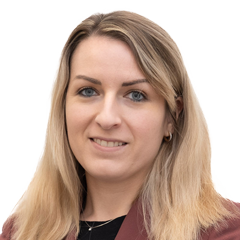
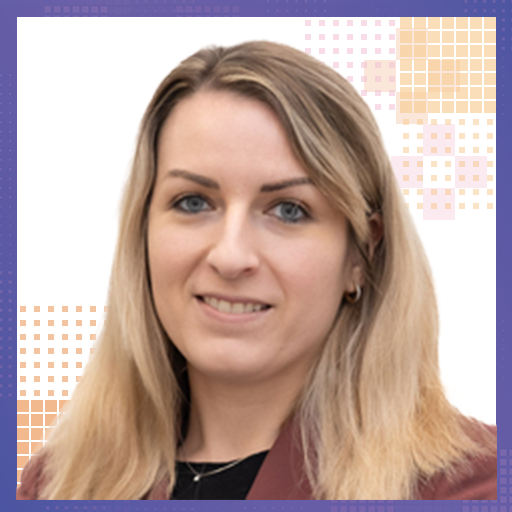 Elena Kaiser, Deputy Head of Division, Cybersecurity Strategy and Policy Division, ACN ITALY
Elena Kaiser, Deputy Head of Division, Cybersecurity Strategy and Policy Division, ACN ITALY Elena Kaiser works as Deputy Head of EU Cybersecurity Strategy and Policies Division at the Italian National Cybersecurity Agency.
In her role, she contributes to the development and analysis of EU cybersecurity policies, ensuring alignment with national interests and regulations, and she represents the Agency in relevant EU working groups.
Before that, she was the Legal Advisor of the Cybersecurity Agency of the Ministry of Economy of Luxembourg.
Elena holds a Ph.D. in Public, International and European Law and is qualified to practice law in Italy.
Deputy Head of Division, Cybersecurity Strategy and Policy Division
ACN ITALY
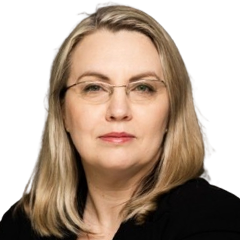
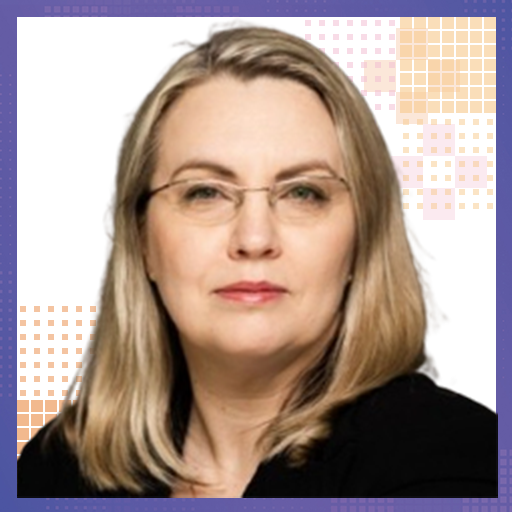 Sarmīte Mickeviča,
Sarmīte Mickeviča, With over 15 years of work experience in the ICT industry, Sarmīte is a Senior Expert in Digitalization at the Ministry of Education and Science of Latvia, where she leads and coordinates the implementation of the national digital transformation strategy in the higher education and research sector. Sarmīte is Chair of the States Representatives Group of the Smart Networks and Services Joint Undertaking, a public-private partnership that aims to accelerate the development and deployment of 5G and 6G technologies in Europe.
She represents Latvia on the EuroHPC JU Governing Board and has contributed to the EU Quantum Strategy Working Group, supporting Europe’s long-term vision for quantum technologies. In Latvia, she has been instrumental in developing advanced digital skills programs for quantum technologies, bridging education, research, and industry needs. Through her work at the intersection of policy, science, and innovation, Sarmite is committed to strengthening Europe’s competitiveness and building a resilient ecosystem for digital and quantum technologies.
Sarmīte has published several papers on CRM, ICT industry competitiveness, and digitalisation. She is passionate about learning new things, exploring new opportunities, and making a positive impact in the world.
Senior Expert in Digitalisation;
Chair
Ministry of Education and Science of Latvia; States Representatives Group of the Smart Networks and Services Joint Undertaking
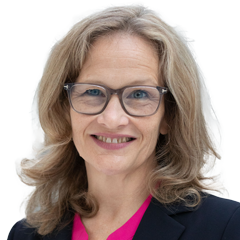
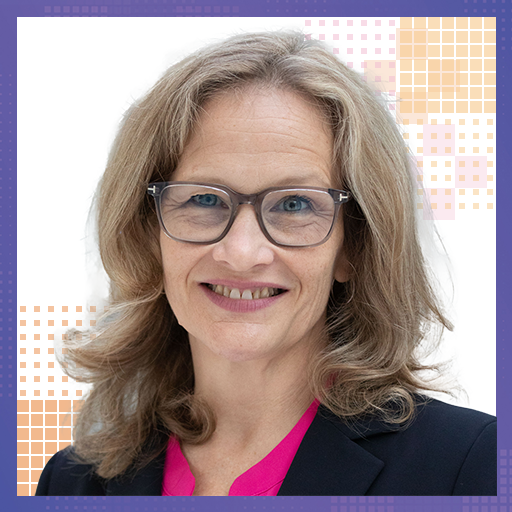 Elizabeth Thomas-Raynaud, Head of the Emerging Digital Technologies Unit, OECD
Elizabeth Thomas-Raynaud, Head of the Emerging Digital Technologies Unit, OECD Elizabeth Thomas-Raynaud is Head of the Emerging Digital Technologies unit of the Science, Technology and Innovation Directorate at the OECD (Organisation for Economic Co-operation and Development).
A dual citizen of Canada and France, Elizabeth joined OECD in 2020 as Head of Secretariat for the newly announced Global Partnership on Artificial Intelligence (GPAI). More recently, she was tasked with launching the Global Forum on Technology (GFTech), a multistakeholder platform for anticipatory dialogue on the long-term opportunities and risks of emerging technologies. In 2023, GFTech identified quantum technologies as a key focus area. Its expert focus group on quantum technologies brings together 49 experts from 26 nationalities, whose deliberations complement the policy activities of the OECD Policy Committees. More information on the work is available here.
Prior to the OECD, Elizabeth directed digital economy policy at the International Chamber of Commerce (ICC), leading global business engagement at the UN, G20, APEC and others on issues such as Internet and telecoms, cybersecurity, privacy, and digital trade.
She studied International Economics and Political Science at the University of British Columbia, in Canada for her Bachelor of Arts and pursued a Master of Arts at City, University of London, in the UK. Executive follow-up studies include, MIT Sloan and CSAIL’s AI programme; Singularity’s Emerging Technology programme and the European Space Agency’s Space law course, with more surely to come.
Head of the Emerging Digital Technologies Unit
OECD
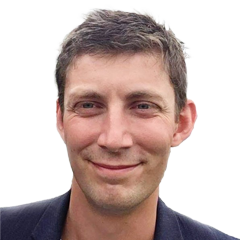
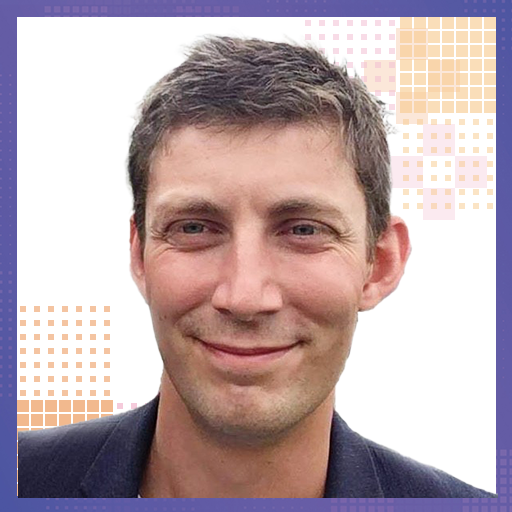 Josh Fedder, Deputy Head of the UK Office for Quantum, Department for Science, Innovation and Technology (DSIT)
Josh Fedder, Deputy Head of the UK Office for Quantum, Department for Science, Innovation and Technology (DSIT) Josh Fedder serves as Deputy Head of the UK Office for Quantum, a pioneering unit established in 2023 under the Department for Science, Innovation & Technology. He oversees the Office’s international engagement, regulation and national security portfolios, shaping interoperable approaches to quantum while building trusted partnerships with like‑minded nations. Josh focuses on aligning roadmaps, de‑risking critical supply chains, and translating complementary capabilities across ecosystems into shared advantage—driving economic growth and safeguarding national security.
Deputy Head of the UK Office for Quantum
Department for Science, Innovation and Technology (DSIT)
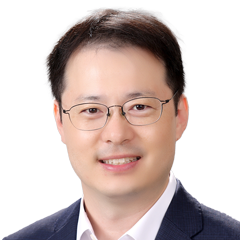
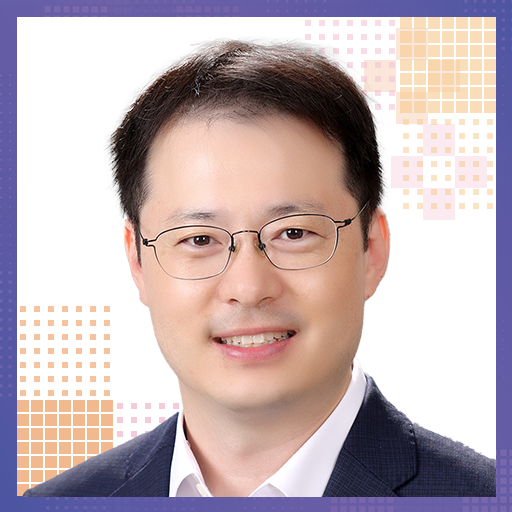 Dr. Jeongwon Lee, Director, Korea-Europe Quantum Science Technology Cooperation
Dr. Jeongwon Lee, Director, Korea-Europe Quantum Science Technology Cooperation Dr. Jeongwon LEE is the Director of the Korea-Europe Quantum Science and Technology Cooperation Center (KE-QSTCC), where he leads initiatives to strengthen collaboration between Korea and Europe in the quantum technology ecosystem.
He holds an M.S. in Electronic Engineering and a Ph.D. in Technology Policy, with his doctoral research focusing on the effectiveness of government R&D subsidies.
With a background in radar system development in the defense sector, he has contributed to shaping Korea’s national ICT strategies, including those related to quantum technologies, artificial intelligence, and other emerging fields.
At the Institute of ICT Planning & Evaluation (IITP), Korea’s primary ICT funding agency, Dr. Lee served as the R&D coordinator for the Korea Quantum Flagship Project.
He has played a key role in fostering the national ecosystem for quantum communication and sensing.
Director
Korea-Europe Quantum Science Technology Cooperation
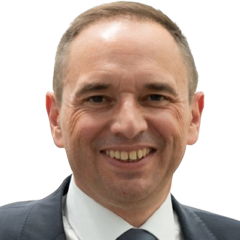
 Laurent Jaffart,
Laurent Jaffart, From France, Mr Jaffart has over 20 years of experience in the European space sector.
Mr Jaffart graduated from the University of Brighton in the UK in 2000 with an honours degree in European business and technology, then gained dual Masters in Business Administration degrees from the former ESC Reims (Reims Management School in France) and Dublin City University. In 2012, Mr Jaffart was awarded a Masters degree in military national resource strategy and policy from the Industrial College of the Armed Forces (now Eisenhower School) at the National Defence University in Washington DC.
Before joining ESA, Mr Jaffart worked for Airbus Defence and Space as Vice-President and Head of Strategy, Corporate and New Business Development in Space Systems, leading a trans-national team based in France, Germany and the UK. He simultaneously served as a member of the Space System Executive Board and as a member of the Airbus OneWeb Satellites Board.
Previously, Mr Jaffart worked in various roles at the European Aeronautic Defence and Space Company (EADS), that went on to become part of Airbus Defence and Space in 2015. These included notably Vice-President and Head of Sales & Marketing Business Growth for Space Systems, Head of Strategy at Astrium Satellites (a subsidiary of EADS) based in Ottobrun, Germany, where he was responsible for the OneWeb bid for the first generation of the constellation and the creation of the joint-venture Airbus OneWeb Satellites.
As Director of Connectivity and Secure Communications, Mr Jaffart will be responsible for ESA’s satellite telecommunication programmes, namely the implementation of the full portfolio of ARTES 4.0 projects in partnership with European and Canadian industries and operators and developing the programme’s commercial nature.
He will also be responsible for strategic programme lines related to 5G/6G non-terrestrial network integration, secure communications, and quantum/optical technologies and for the new portfolio of programmes approved at the ESA Ministerial Council in 2022, namely the ESA contribution to EU Secure Connectivity Programme IRIS2, Moonlight, and Civil Security from Space.
Director of Connectivity and Secure Communications
ESA
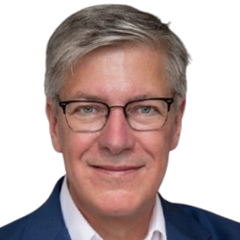
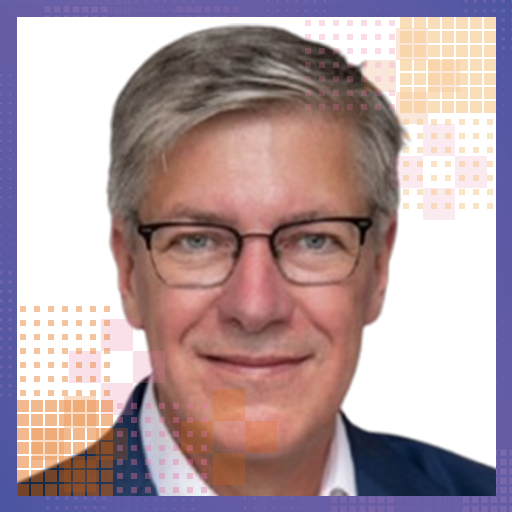 Jan Ellsberger,
Jan Ellsberger, Jan Ellsberger is a globally recognised leader in the ICT industry with more than 30 years of experience with research and innovation, industry ecosystem development, standardisation, policy development & regulation, and strategy development in the telecommunications and automotive industries. From 2000-2012 he was leading Ericsson’s global standardisation operations. He has also served in leading positions in several industry associations such as 3GPP, 5GAA, ERTICO and the Horizon Europe CCAM Association.
Director General
ETSI
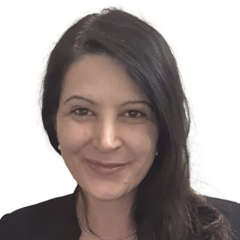
 Fabiana Da Pieve, Programme Manager, Emerging and Disruptive Technologies, DG CONNECT, European Commission
Fabiana Da Pieve, Programme Manager, Emerging and Disruptive Technologies, DG CONNECT, European Commission Dr. Fabiana Da Pieve works as Programme Manager at the European Commission, DG CONNECT, in the Unit “Emerging and Disruptive Technologies”, where she focuses on both post-quantum cryptography and quantum communications, designing work programmes and policy initiatives. She has 19 years experience in fundamental research, on problems related to the entanglement, many-body physics, and, in the last part of her academic career, space missions. She also had an education in cryptography and worked in the past on the cryptographic tests of the Galileo Public Regulated Service. She is strongly involved in designing new initiatives to facilitate the EU transition to PQC, for both deployment actions and fundamental research for new applications and cryptanalysis, and she is strongly involved in the work of PQC workstream of the NIS cooperation group on setting the path for a coordinated transition across the whole EU. For quantum communications, she designs new activities in the context of EuroQCI, both for the ground and space segment, also beyond the sole key exchange functionality to facilitate the path towards future broader scope quantum networks.
Programme Manager, Emerging and Disruptive Technologies, DG CONNECT
European Commission
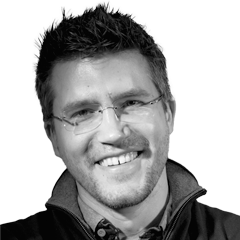
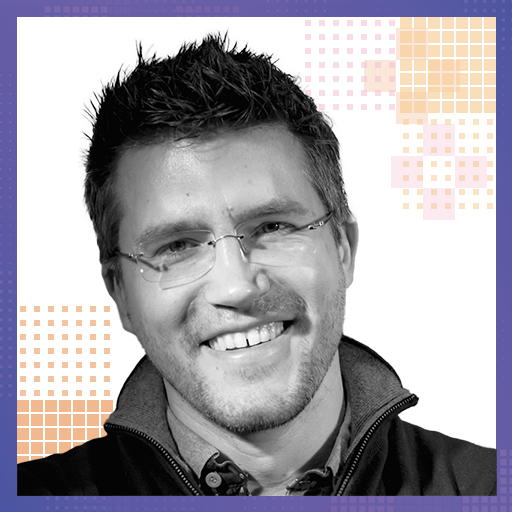 Pierre Jaeger, Strategic Partnerships and Technical Director, IBM Quantum
Pierre Jaeger, Strategic Partnerships and Technical Director, IBM Quantum Pierre is a Technical Director at IBM, in charge of strategic partnerships for IBM Quantum, mainly in Europe.
Pierre has more than 18 years of experience and began his career at the CEA in scientific computing and parallel codes, then at CSSI on the CEA’s scientific platforms. He then joined IBM Technology Services in 2006 to take on a role as IT Specialist for SNECMA, then IT Architect. His career then led him to IBM Systems, where he held the position of technical leader for Crédit Agricole. He then took over the management of the technical architects of IBM Systems France, before taking up the position of Technical Director of the IBM Systems France entity. Since June 2021, Pierre has been actively working on the development of IBM Quantum’s strategic partnerships, particularly in the areas of government, finance and chemicals.
Pierre graduated from Polytech Sorbonne in 2005, specializing in Mathematics and Computer Science.
Strategic Partnerships and Technical Director
IBM Quantum
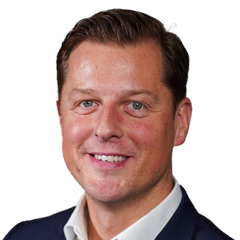
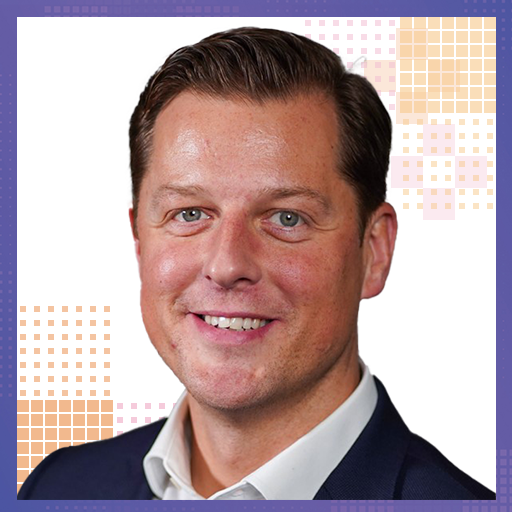 Tomas Jakimavicius, Director, European Government Affairs, Microsoft
Tomas Jakimavicius, Director, European Government Affairs, Microsoft Tomas Jakimavicius is a European Government Affairs Director at Microsoft. His main activities focus on Digital Infrastructure, Cloud, Quantum and Industrial regulatory policies impacting Microsoft and its customers’ use of and access to Microsoft’s products and services. Tomas has over 15 years of a wide-ranging senior level experience in both private and public sectors. In his career, he held leadership and advisory positions in trade associations and private sector companies and served as a diplomat at the Council of the European Union with a focus on EU digital regulatory policies.
Director, European Government Affairs
Microsoft
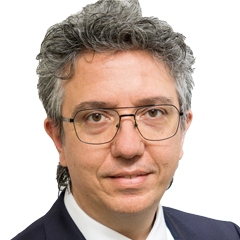
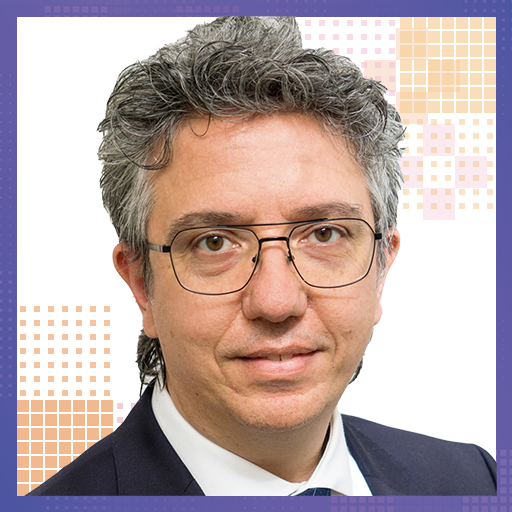 Dr Tommaso Occhipinti, CEO, QTI
Dr Tommaso Occhipinti, CEO, QTI Tommaso Occhipinti is Co-founder & CEO of QTI – Quantum Telecommunications Italy, a Telsy’s company within the TIM Group specialising in the development of quantum devices for quantum-safe networks. He started his career (2002) in the academic research field of quantum astronomy and quantum communications (PhD in Telecommunication Engineering, Padova University). In the following years, he started his business career founding innovative start-ups and, in 2020, he was among QTI co-founders. As CEO of QTI, he defines the company’s strategic direction, ensuring organizational unity and operational coherence. He represents QTI before institutional and industrial stakeholders and partners, with the goal of promoting the adoption of quantum-resistant security solutions, in particular Quantum Key Distribution (QKD), in strategic market segments and among public institutions.
CEO
QTI
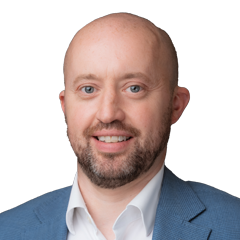
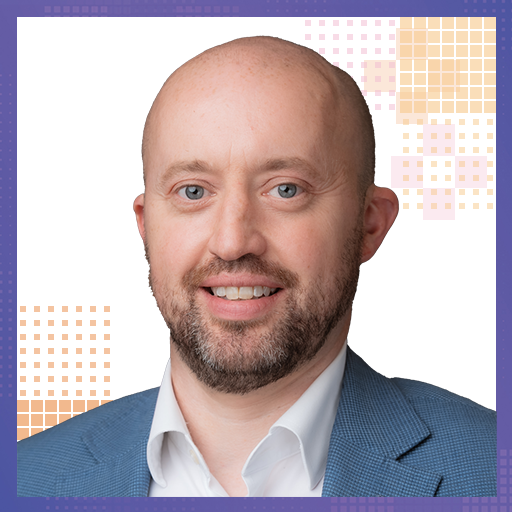 Gerald Mullally, CEO, Oxford Quantum Circuits
Gerald Mullally, CEO, Oxford Quantum Circuits As CEO of OQC, Gerald spearheads the company vision, mission and values through the delivery of strategic objectives and ensuring shareholder value. Gerald has spent two decades delivering technology solutions for customers across life sciences, financial services, energy and defence at leading companies including Accenture and PwC. He was also a Director at the UK Prime Minister’s Office and Cabinet Office, working on security related projects; a position he held for 8 years.
CEO
Oxford Quantum Circuits
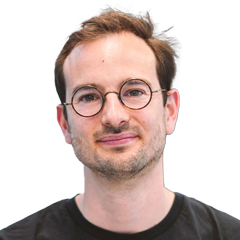
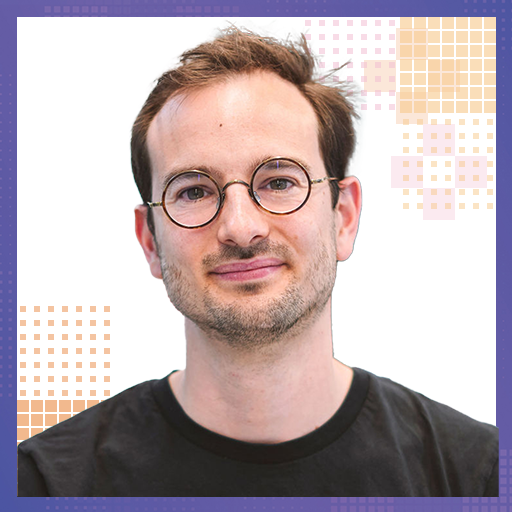 Pierre Desjardins, Co-founder and CEO, C12 Quantum Electronics
Pierre Desjardins, Co-founder and CEO, C12 Quantum Electronics Pierre Desjardins, co-founder and CEO, Managing Director. He is a graduate of École Polytechnique and Columbia University in New York (Master of Science in quantum physics obtained in 2013). He has worked as a research assistant at MIT’s Quantum Photonics Lab. From 2014 to 2020, he was a strategy consultant at Roland Berger, a global consulting firm. He managed or participated in over 40 projects, advising companies and investment funds on strategic and operational assignments.
Co-founder and CEO
C12 Quantum Electronics

 Ivan Doboš, Head of Quantum, Aricoma
Ivan Doboš, Head of Quantum, Aricoma Ivan Doboš is an IT leader with more than 30 years of experience in the IT sector, he holds the position of Technology Evangelist & Head of Quantum at Aricoma. He has worked in several leading IT companies in Slovakia and abroad and has extensive experience in team leadership, strategic planning and technology innovation. He has implemented IT solutions for major organisations and managed multi-million dollar programs and projects. Currently, he focuses on quantum computing, focusing on its practical application and popularisation.
Head of Quantum
Aricoma
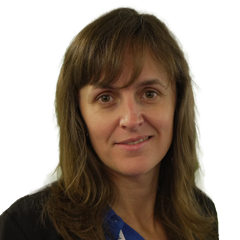
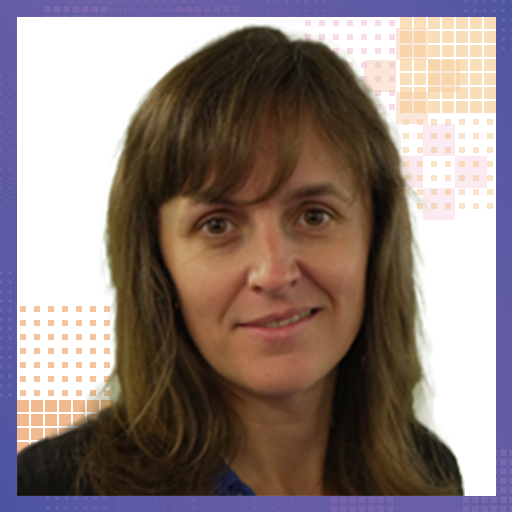 Alexandra Paul, Global Public Policy Lead, Pasqal
Alexandra Paul, Global Public Policy Lead, Pasqal Alexandra comes with 15 years of professional experience within the public sector, private sector and academia.
She is currently working at Pasqal – the global quantum computing leader based on neutral atoms technology – as the Global Public Policy Lead. In her role, she takes responsibility over Pasqal’s Public Affairs, Standardization and Sustainability activities.
Alexandra previously worked as Chief Economist in the Cloud & Software Unit at the European Commission’s Directorate General for Communications Networks, Content and Technology (DG CONNECT). In that role, she took responsibility over the economic, competition, statistical, industrial and investment aspects of cloud computing. She notably acted as the Commission’s trusted advisor to guide 12 Member States and hundreds of companies from the data, cloud and software ecosystems to design and set-up the Important Project of Common European Interest on Next Generation Cloud Infrastructure and Services.
Prior to that, she worked at Accenture where she pursued strategic consultancy missions for more than 50 public administrations and local governments across Europe in which she specialized in the digital transformation of public services and cities.
Alexandra started her career as an academic and teaching fellow at the College of Europe, where her research focused on the use of European public funding to shape local policies in Spain, Italy and Portugal.
She graduated in Economics and Sociology and in European Affairs and Public Policy, from the London School of Economics (LSE), the College of Europe, Sciences Po. Paris and la Sorbonne.
Global Public Policy Lead
Pasqal

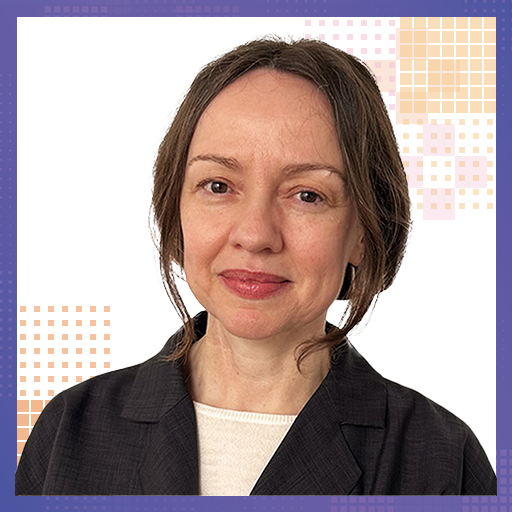 Eva Martín Fierro, Head of Innovation, Qilimanjaro Quantum Tech
Eva Martín Fierro, Head of Innovation, Qilimanjaro Quantum Tech Dr Eva Martín Fierro is the Head of Innovation at Qilimanjaro Quantum Tech, where she leads the management of innovative quantum computing solutions. With over a decade of experience in theoretical physics research and 15 years in technology transfer, Eva has a proven track record of translating scientific ideas into business opportunities that meet market needs. She holds a PhD in Physics and has completed Executive Development Program at IESE Business School. Her international experience includes research positions as postdoc at the Weizmann Institute of Science in Israel and Freiburg University in Germany.
In her role as Head of Innovation, she leads key strategic functions spanning the definition and management of Qilimanjaro’s Intellectual Property strategy, the development of product and go-to-market strategies, the strengthening of competitive positioning and differentiation, and the identification of funding opportunities. She also plays an active role in representing the company within relevant innovation ecosystems, contributing to dialogues and initiatives across the public and private quantum sectors.
Head of Innovation
Qilimanjaro Quantum Tech
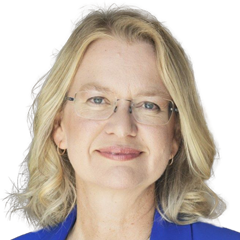
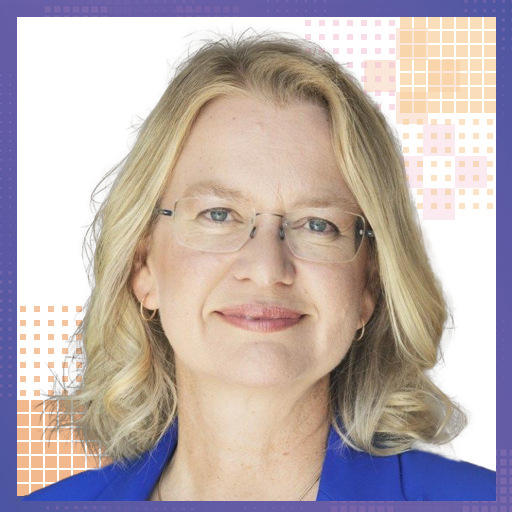 Dr. Lene Oddershede, Chief Scientific Officer, Planetary Science & Technology, Novo Nordisk Foundation
Dr. Lene Oddershede, Chief Scientific Officer, Planetary Science & Technology, Novo Nordisk Foundation Lene joined the Novo Nordisk Foundation in 2019 to establish and lead activities in the Nat-Tech area covering the natural- and technical sciences, this including activities relating to quantum technologies and artificial intelligence. She has a background as a Professor of physics, Niels Bohr Institute (NBI) at Copenhagen University (~20 years).
Lene is a physicist, trained also in mathematics. She is an experimentalist and at the Niels Bohr Institute she constructed the first optical tweezers manipulation facility in Scandinavia. She is an expert in the interphase between quantum and the life sciences and is key designer of the Novo Nordisk Foundation Quantum Computing Programme, of the Quantum Foundry Copenhagen, as well as of the AI and quantum dedicated super-compute facilities Gefion and Magne, respectively. As a researcher, she has been the leader of several interdisciplinary large-scale research projects, including center leader of a Grundforskningsfond Center of Excellence. She has received several research prizes, e.g., the Danish Optical Society prize for young investigators, the Silver Medal of the Danish Royal Academy of Sciences and Letters, and the Elite Research Prize from the Danish Research Councils, the largest Danish public research prize. Lene Oddershede is a member of the Danish Academy of Technical Sciences, of the Danish Royal Academy of Sciences and Letters, and of the Global Future Council for quantum economy at the World Economic Forum (WEF).
PhD in physics from SDU, Odense, Denmark 1998.
Chief Scientific Officer, Planetary Science & Technology
Novo Nordisk Foundation
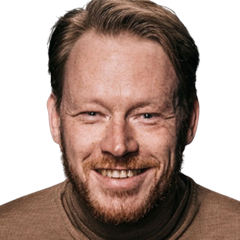
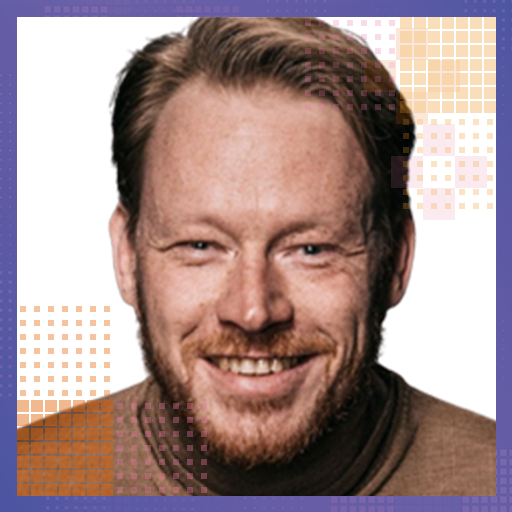 Johannes Verst,
Johannes Verst, Johannes is CEO and founder of QBN, the Global Industry Network for quantum technologies. He is also an active advisor and investor, and has been awarded as Best Ambassador for EU Sovereignty. With a robust background in deeptech, quantum physics and applied R&D, a wealth of experience in company and ecosystem building as well as international cluster management, Johannes plays a pivotal role in bridging the gap between industry, science and policy and leverages his expertise and global network to drive the societal and economic impact of quantum!
CEO and founder
QBN
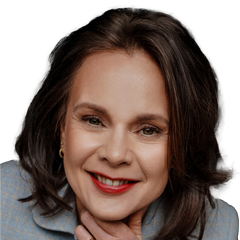
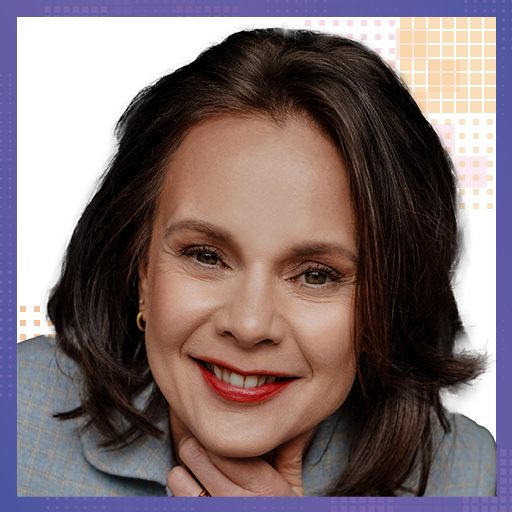 Freeke Heijman-te Paske, Vice President, QuIC
Freeke Heijman-te Paske, Vice President, QuIC Freeke is a seasoned executive at the forefront of quantum and deeptech innovation. She has a proven track record of building ecosystems at the intersection of policy, academia, and industry. As co-founder and first director of Quantum Delta NL, the Dutch national quantum initiative, she spearheaded its €615M Ecosystem Approach, one of the largest public investments in quantum worldwide.
In 2024, she joined Qblox as part time Government Affairs Officer and was elected in May 2025 as Vice-President of QuIC. In parallel she launched an independent consultancy, advising leading organizations including NATO on quantum supply-chain vulnerabilities.
Beyond her executive roles, Freeke serves on advisory boards for the European Innovation Council (EIC) and OrangeQS, and is a two-term Co-Chair of a WEF Global Future Council.
As a trained Delft Systems Engineer, she was in senior leadership positions at the Dutch Ministry of Economic Affairs before dedicating herself to Europe’s quantum technology landscape.
Vice President
QuIC
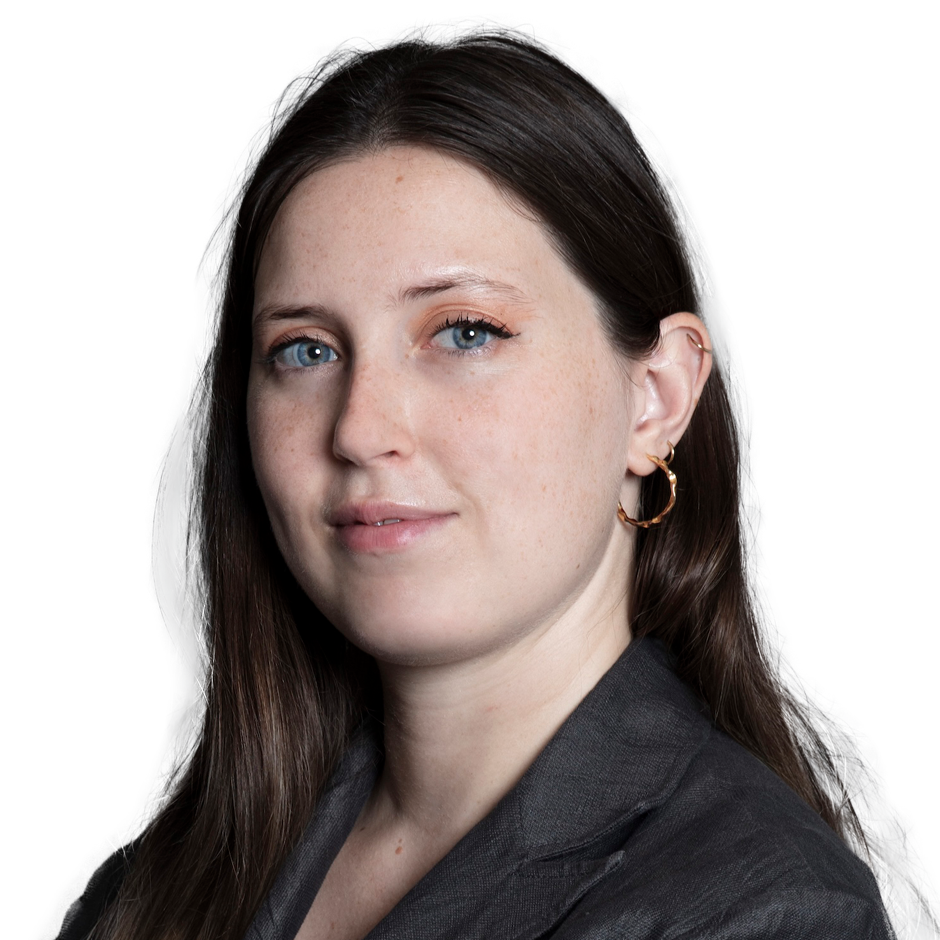
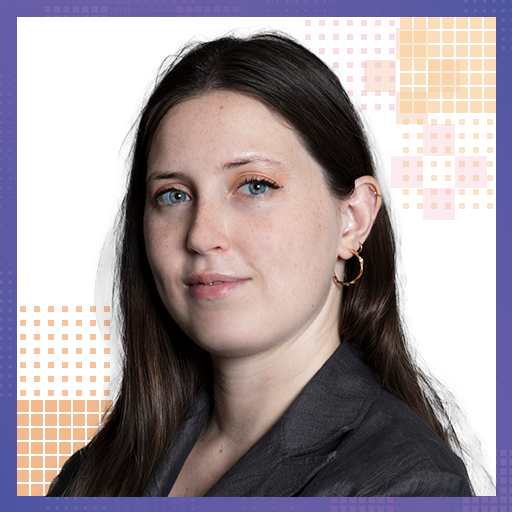 Andrea G Rodriguez, Director for Quantum Technologies, adigital
Andrea G Rodriguez, Director for Quantum Technologies, adigital Andrea G. Rodríguez is Director for Quantum Technologies at Adigital, the Spanish Digital Economy Association. She is also Acting Chair of the Governance Board at IMPAQT, a quantum computing consortium based in Delft, The Netherlands. Andrea is also an Associate Research Fellow in the GRID Unit at CEPS. She participates in many advisory and working groups at different organisations, such as NATO STO.
Director for Quantum Technologies
adigital
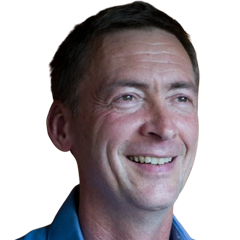
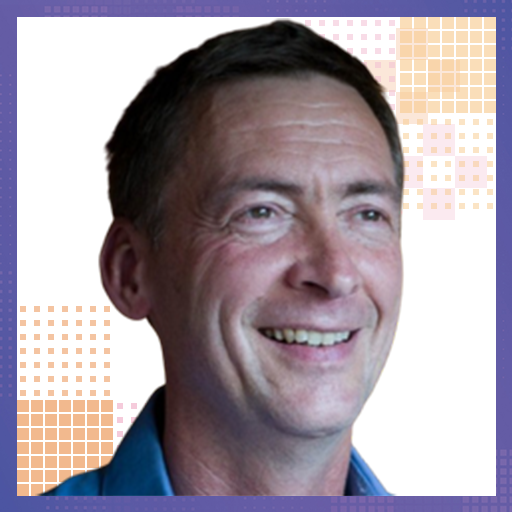 Philippe Defraigne, Founding Director, Cullen International
Philippe Defraigne, Founding Director, Cullen International A founding director of Cullen International in 1988, Philippe has worked extensively on EU regulation affecting the telecoms and internet sectors and the implementation at national level across Europe. He is widely regarded in the industry as one of the leading experts in the field. Philippe pioneered the practice of cross-country benchmarking of national regulation – the core methodology used across all of Cullen International’s intelligence services. He leads business development activities for the company – focussing on building Cullen International’s business outside of Europe, in particular in Latin America, the Middle East & North Africa. Philippe frequently presents Cullen International research at industry conferences, client briefings and training courses.
Founding Director
Cullen International
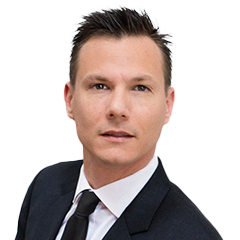
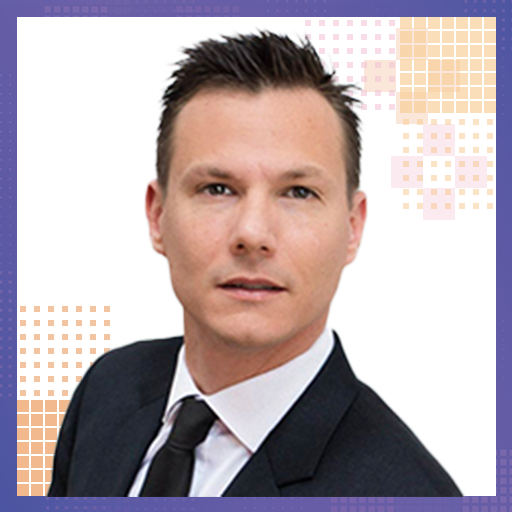 Axel Ferrazzini, Founder & Managing Partner, GovStrat and ETSI Board
Axel Ferrazzini, Founder & Managing Partner, GovStrat and ETSI Board Axel Ferrazzini leads a consulting firm based in Brussels, specialised in quantum technologies and intellectual property rights. He heads the academic programme for the quantum computing and technologies major at EPITA, a leading engineering computer science school in Paris. He teaches innovation strategy at Bocconi University in Milan.
He is listed as an inventor on more than 20 patents and has contributed to standards development organisations for more than 20 years. Axel has served as an elected member of the ETSI Board since 2014 and of the Global Intellectual Property Alliance Board since 2022. He has been ranked in the IAM Strategy 300: The World’s Leading IP Strategists since 2022.
Founder & Managing Partner
GovStrat and ETSI Board
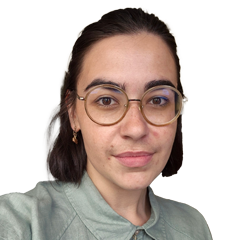
 Sapphire Lally, Consultant on Quantum technologies
Sapphire Lally, Consultant on Quantum technologies Sapphire works at the intersection of telecoms and quantum, developing technical and commercial use cases for quantum technologies in the telco ecosystem. She has a PhD in quantum theory, where she explored the mathematics of open quantum systems and investigated ways to extend the lifetime of useful quantum effects. She then spent several years as a consultant building network models for telco strategy projects including mergers, spectrum acquisitions, and network sharing agreements, as well as writing and researching white papers on spectrum, satellite, and entrant operator policy. She is excited by the potential offered by widespread quantum communication infrastructure – enabling use cases not only for telcos, but across a wide range of sectors including healthcare, logistics, and research.
Consultant on Quantum technologies
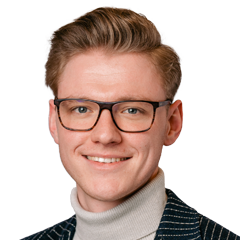
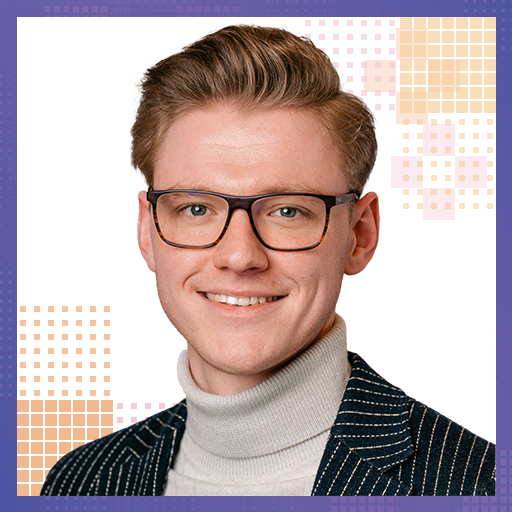 Enrico Merckaert, Security & Quantum Cryptography Consultant, EY
Enrico Merckaert, Security & Quantum Cryptography Consultant, EY Enrico is a cybersecurity professional in financial services specialising in application security. At EY, he helps teams build and run secure software by embedding security into the SDLC, leading threat modelling, and driving remediation of vulnerabilities that put sensitive data at risk.
With a strong interest in quantum resilience, Enrico works with EY clients to get ready for the post-quantum era by performing crypto‑agility tests, building cryptographic inventories, and exploring pilots of post‑quantum cryptography in various applications. He actively tracks the European Commission’s Recommendation on the transition to PQC, the NIS Cooperation Group’s Coordinated Implementation Roadmap & NIS2, translating policy into practical migration roadmaps and setting vendor requirements.
Current priorities include reducing “harvest now, decrypt later” exposure, modernising key management and aligning security, infrastructure on quantum‑ready standards.
Security & Quantum Cryptography Consultant
EY

 Enrico Merckaert, Security & Quantum Cryptography Consultant, EY
Enrico Merckaert, Security & Quantum Cryptography Consultant, EY Enrico is a cybersecurity professional in financial services specialising in application security. At EY, he helps teams build and run secure software by embedding security into the SDLC, leading threat modelling, and driving remediation of vulnerabilities that put sensitive data at risk.
With a strong interest in quantum resilience, Enrico works with EY clients to get ready for the post-quantum era by performing crypto‑agility tests, building cryptographic inventories, and exploring pilots of post‑quantum cryptography in various applications. He actively tracks the European Commission’s Recommendation on the transition to PQC, the NIS Cooperation Group’s Coordinated Implementation Roadmap & NIS2, translating policy into practical migration roadmaps and setting vendor requirements.
Current priorities include reducing “harvest now, decrypt later” exposure, modernising key management and aligning security, infrastructure on quantum‑ready standards.
Security & Quantum Cryptography Consultant
EY

 Enrico Merckaert, Security & Quantum Cryptography Consultant, EY
Enrico Merckaert, Security & Quantum Cryptography Consultant, EY Enrico is a cybersecurity professional in financial services specialising in application security. At EY, he helps teams build and run secure software by embedding security into the SDLC, leading threat modelling, and driving remediation of vulnerabilities that put sensitive data at risk.
With a strong interest in quantum resilience, Enrico works with EY clients to get ready for the post-quantum era by performing crypto‑agility tests, building cryptographic inventories, and exploring pilots of post‑quantum cryptography in various applications. He actively tracks the European Commission’s Recommendation on the transition to PQC, the NIS Cooperation Group’s Coordinated Implementation Roadmap & NIS2, translating policy into practical migration roadmaps and setting vendor requirements.
Current priorities include reducing “harvest now, decrypt later” exposure, modernising key management and aligning security, infrastructure on quantum‑ready standards.
Security & Quantum Cryptography Consultant
EY

 Enrico Merckaert, Security & Quantum Cryptography Consultant, EY
Enrico Merckaert, Security & Quantum Cryptography Consultant, EY Enrico is a cybersecurity professional in financial services specialising in application security. At EY, he helps teams build and run secure software by embedding security into the SDLC, leading threat modelling, and driving remediation of vulnerabilities that put sensitive data at risk.
With a strong interest in quantum resilience, Enrico works with EY clients to get ready for the post-quantum era by performing crypto‑agility tests, building cryptographic inventories, and exploring pilots of post‑quantum cryptography in various applications. He actively tracks the European Commission’s Recommendation on the transition to PQC, the NIS Cooperation Group’s Coordinated Implementation Roadmap & NIS2, translating policy into practical migration roadmaps and setting vendor requirements.
Current priorities include reducing “harvest now, decrypt later” exposure, modernising key management and aligning security, infrastructure on quantum‑ready standards.
Security & Quantum Cryptography Consultant
EY
**Times are in CET**

Mr Marc Lemaître is Director-General for Research and Innovation (DG RTD) since February 2023. He has extensive management experience at the European Commission as Director-General for Regional and Urban Policy (DG REGIO) from 2016 to January 2023, Director of the Office for Administration and Payment of individual entitlements (PMO) between 2013 and 2016, and previously Head of the Cabinets of the Commissioners responsible for Budget (2010 – 2013), and Regional Policy (2007 – 2010).
Before joining the Commission, he worked in the Permanent Representation of Luxembourg to the European Union, dealing with budgetary, trade and general affairs issues (1996 -2006).
Marc Lemaître studied at the Université Libre de Bruxelles (ULB), College of Europe in Bruges, and holds a Masters in European Economics.

As the head of the Secretariat of State for Science, Innovation, and Universities, Juan Cruz Cigudosa is responsible for overseeing the department’s competencies in science, innovation, and universities, as well as for developing policies related to these areas (Royal Decree 472/2024, of May 7, establishing the basic organizational structure of the Ministry of Science, Innovation, and Universities).
Juan has held various positions in the Government of Navarra, including Minister of University, Innovation, and Digital Transformation, as well as Minister of Economy and Finance.
He holds a PhD in Biological Sciences from the University of Navarra and has focused his research career on Human Genetics and its relationship with cancer and rare diseases since 1987. He has completed predoctoral and postdoctoral research stays in Lund (Sweden), Manchester (United Kingdom), and New York (USA). Additionally, he served as an associate specialist in the Canary Islands Health Service from 1997 to 2000.
Juan was Director of the Molecular Cytogenetics Group at the Spanish National Cancer Research Center (CNIO) from 2001 to 2017 and the founder and Chief Scientific and Innovation Officer at NIMGenetics, a Genomic Biotechnology company, from 2017 to 2019. He is also an honorary professor at both the Autonomous University of Madrid and the Complutense University of Madrid.
Juan has published over 170 articles in international scientific journals, has led national and international competitive research projects, and has supervised 12 doctoral theses. He has also been awarded the Best Young Researcher in Human Genetics Prize (1999), the Honorary Plaque of the Spanish Association of Scientists (2000), and the Academic Talent Award from Cinco Días newspaper (2013).
Freeke is a seasoned executive at the forefront of quantum and deeptech innovation. She has a proven track record of building ecosystems at the intersection of policy, academia, and industry. As co-founder and first director of Quantum Delta NL, the Dutch national quantum initiative, she spearheaded its €615M Ecosystem Approach, one of the largest public investments in quantum worldwide.
In 2024, she joined Qblox as part time Government Affairs Officer and was elected in May 2025 as Vice-President of QuIC. In parallel she launched an independent consultancy, advising leading organizations including NATO on quantum supply-chain vulnerabilities.
Beyond her executive roles, Freeke serves on advisory boards for the European Innovation Council (EIC) and OrangeQS, and is a two-term Co-Chair of a WEF Global Future Council.
As a trained Delft Systems Engineer, she was in senior leadership positions at the Dutch Ministry of Economic Affairs before dedicating herself to Europe’s quantum technology landscape.
The European Commission’s recently unveiled Quantum Strategy sets out an ambitious roadmap to position Europe as a global leader in quantum technologies by 2030. Structured around five key pillars, the Strategy outlines major initiatives, including the launch of the Quantum Europe research and innovation initiative, the creation of a quantum design facility, six pilot lines for quantum chips, a pilot facility for the European quantum internet, and the expansion of Quantum Competence Clusters across the EU. It also introduces the European Quantum Skills Academy, due to launch in 2026.
In this context, the session will explore how policy, regulation, and governance can underpin the development of a resilient, future-ready, and strategically autonomous quantum ecosystem. Panelists will assess the ambition and scope of the Strategy, evaluate whether its proposed actions are sufficient to meet Europe’s goals, and examine how these efforts can help realise the vision of Europe as the “Quantum Valley” of the world — a centre of excellence, innovation, and industrial strength in quantum science and technology.
Dr. Gustav Kalbe studied Applied Physics at the Université Catholique de Louvain, Belgium. In 1991 he studied Applied Optics at the Imperial College of Science in London. In 1995 he completed his studies and earned a PhD in Physics, Molecular Spectroscopy, at the UCL, Belgium.
He started his professional career as a project manager in photonic networks at the incumbent telecom operator in Belgium. He was R&D manager when he left the company.
In 1998 he joined the Directorate General Information Society & Media of the European Commission where he started working as Project Officer managing research projects of the European Framework Programs for Research. Over the years he had several assignments in quantum technologies, photonics, and cybersecurity.
In 2014 Gustav Kalbe became HoU for Administration & Finance in the European Commission, in DG Connect.
In 2016 he was appointed HoU of the newly created High Performance Computing and Quantum Technology unit in DG Connect.
In 2018 he became responsible for the establishment and operation of the European High Performance Computing Joint Undertaking. He occupied the post of Interim Executive Director of the JU until its autonomy by the end of 2020.
In January 2021, he was appointed Deputy to the Director of DG Connect C “Digital Excellence and Science Infrastructure”.
Since May 2022 Gustav is the Acting Director of DG Connect C “Digital Excellence and Science Infrastructure”.
Pierre is a Technical Director at IBM, in charge of strategic partnerships for IBM Quantum, mainly in Europe.
Pierre has more than 18 years of experience and began his career at the CEA in scientific computing and parallel codes, then at CSSI on the CEA’s scientific platforms. He then joined IBM Technology Services in 2006 to take on a role as IT Specialist for SNECMA, then IT Architect. His career then led him to IBM Systems, where he held the position of technical leader for Crédit Agricole. He then took over the management of the technical architects of IBM Systems France, before taking up the position of Technical Director of the IBM Systems France entity. Since June 2021, Pierre has been actively working on the development of IBM Quantum’s strategic partnerships, particularly in the areas of government, finance and chemicals.
Pierre graduated from Polytech Sorbonne in 2005, specialising in Mathematics and Computer Science.
Ivan Doboš is an IT leader with more than 30 years of experience in the IT sector, he holds the position of Technology Evangelist & Head of Quantum at Aricoma. He has worked in several leading IT companies in Slovakia and abroad and has extensive experience in team leadership, strategic planning and technology innovation. He has implemented IT solutions for major organisations and managed multi-million dollar programs and projects. Currently, he focuses on quantum computing, focusing on its practical application and popularisation.
Alexandra comes with 15 years of professional experience within the public sector, private sector and academia.
She is currently working at Pasqal – the global quantum computing leader based on neutral atoms technology – as the Global Public Policy Lead. In her role, she takes responsibility over Pasqal’s Public Affairs, Standardisation and Sustainability activities.
Alexandra previously worked as Chief Economist in the Cloud & Software Unit at the European Commission’s Directorate General for Communications Networks, Content and Technology (DG CONNECT). In that role, she took responsibility over the economic, competition, statistical, industrial and investment aspects of cloud computing. She notably acted as the Commission’s trusted advisor to guide 12 Member States and hundreds of companies from the data, cloud and software ecosystems to design and set-up the Important Project of Common European Interest on Next Generation Cloud Infrastructure and Services.
Prior to that, she worked at Accenture where she pursued strategic consultancy missions for more than 50 public administrations and local governments across Europe in which she specialised in the digital transformation of public services and cities.
Alexandra started her career as an academic and teaching fellow at the College of Europe, where her research focused on the use of European public funding to shape local policies in Spain, Italy and Portugal.
She graduated in Economics and Sociology and in European Affairs and Public Policy, from the London School of Economics (LSE), the College of Europe, Sciences Po. Paris and la Sorbonne.
Freeke is a seasoned executive at the forefront of quantum and deeptech innovation. She has a proven track record of building ecosystems at the intersection of policy, academia, and industry. As co-founder and first director of Quantum Delta NL, the Dutch national quantum initiative, she spearheaded its €615M Ecosystem Approach, one of the largest public investments in quantum worldwide.
In 2024, she joined Qblox as part time Government Affairs Officer and was elected in May 2025 as Vice-President of QuIC. In parallel she launched an independent consultancy, advising leading organizations including NATO on quantum supply-chain vulnerabilities.
Beyond her executive roles, Freeke serves on advisory boards for the European Innovation Council (EIC) and OrangeQS, and is a two-term Co-Chair of a WEF Global Future Council.
As a trained Delft Systems Engineer, she was in senior leadership positions at the Dutch Ministry of Economic Affairs before dedicating herself to Europe’s quantum technology landscape.
As quantum technologies transition from research to real-world deployment, leading European companies are beginning to apply quantum solutions to address complex industrial challenges. From pharmaceutical discovery and advanced materials to aerospace optimisation and financial modeling, businesses across sectors are exploring quantum computing, sensing, and secure communications to unlock new capabilities and competitive advantages.
Accordingly, this session will highlight concrete case studies of quantum adoption, providing a platform for users to share their strategies, milestones, and key lessons learned. Panelists will discuss how quantum is driving innovation and operational efficiency, while also confronting the major challenges of commercial scalability, investment, and an evolving regulatory environment. With Europe aiming to lead globally in quantum, the conversation will explore what is needed to support the transition from pilots to production, including industrial readiness, skills development, and enabling policy, and how businesses can future-proof themselves for the quantum age.
Dr. Gustav Kalbe studied Applied Physics at the Université Catholique de Louvain, Belgium. In 1991 he studied Applied Optics at the Imperial College of Science in London. In 1995 he completed his studies and earned a PhD in Physics, Molecular Spectroscopy, at the UCL, Belgium.
He started his professional career as a project manager in photonic networks at the incumbent telecom operator in Belgium. He was R&D manager when he left the company.
In 1998 he joined the Directorate General Information Society & Media of the European Commission where he started working as Project Officer managing research projects of the European Framework Programs for Research. Over the years he had several assignments in quantum technologies, photonics, and cybersecurity.
In 2014 Gustav Kalbe became HoU for Administration & Finance in the European Commission, in DG Connect.
In 2016 he was appointed HoU of the newly created High Performance Computing and Quantum Technology unit in DG Connect.
In 2018 he became responsible for the establishment and operation of the European High Performance Computing Joint Undertaking. He occupied the post of Interim Executive Director of the JU until its autonomy by the end of 2020.
In January 2021, he was appointed Deputy to the Director of DG Connect C “Digital Excellence and Science Infrastructure”.
Since May 2022 Gustav is the Acting Director of DG Connect C “Digital Excellence and Science Infrastructure”.
Mira Yossifova is a Bulgarian futurist and innovation policy expert who has dedicated nearly two decades to transforming strategic foresight into actionable government policies. Currently serving as the Director of Policy and Analysis at the Ministry of Innovation and Growth of Bulgaria, she stands at the intersection of technology, innovation, and strategic planning in shaping the country’s future.
With over 18 years of experience in governmental organizations, Yossifova has built her career around strategic foresight, innovation policy, and analytical research. Her professional journey includes significant roles across multiple Bulgarian institutions, including positions at the National Employment Agency, Ministry of Culture, and State Agency for Research and Innovation, before ascending to her current leadership role in the innovation sector.
Since November 2021, she has focused specifically on innovation policy, where her responsibilities encompass writing strategic analyses, conducting assessments, and implementing governmental strategic foresight projects. Her work involves crafting strategies that prepare Bulgaria for future technological and economic challenges while fostering an environment for sustainable growth.
As CEO of OQC, Gerald spearheads the company vision, mission and values through the delivery of strategic objectives and ensuring shareholder value. Gerald has spent two decades delivering technology solutions for customers across life sciences, financial services, energy and defence at leading companies including Accenture and PwC. He was also a Director at the UK Prime Minister’s Office and Cabinet Office, working on security related projects; a position he held for 8 years.
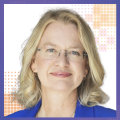
Lene joined the Novo Nordisk Foundation in 2019 to establish and lead activities in the Nat-Tech area covering the natural- and technical sciences, this including activities relating to quantum technologies and artificial intelligence. She has a background as a Professor of physics, Niels Bohr Institute (NBI) at Copenhagen University (~20 years).
Lene is a physicist, trained also in mathematics. She is an experimentalist and at the Niels Bohr Institute she constructed the first optical tweezers manipulation facility in Scandinavia. She is an expert in the interphase between quantum and the life sciences and is key designer of the Novo Nordisk Foundation Quantum Computing Programme, of the Quantum Foundry Copenhagen, as well as of the AI and quantum dedicated super-compute facilities Gefion and Magne, respectively. As a researcher, she has been the leader of several interdisciplinary large-scale research projects, including center leader of a Grundforskningsfond Center of Excellence. She has received several research prizes, e.g., the Danish Optical Society prize for young investigators, the Silver Medal of the Danish Royal Academy of Sciences and Letters, and the Elite Research Prize from the Danish Research Councils, the largest Danish public research prize. Lene Oddershede is a member of the Danish Academy of Technical Sciences, of the Danish Royal Academy of Sciences and Letters, and of the Global Future Council for quantum economy at the World Economic Forum (WEF).
PhD in physics from SDU, Odense, Denmark 1998.

Pierre Desjardins, co-founder and CEO, Managing Director. He is a graduate of École Polytechnique and Columbia University in New York (Master of Science in quantum physics obtained in 2013). He has worked as a research assistant at MIT’s Quantum Photonics Lab. From 2014 to 2020, he was a strategy consultant at Roland Berger, a global consulting firm. He managed or participated in over 40 projects, advising companies and investment funds on strategic and operational assignments.
Johannes is CEO and founder of QBN, the Global Industry Network for quantum technologies. He is also an active advisor and investor, and has been awarded as Best Ambassador for EU Sovereignty. With a robust background in deeptech, quantum physics and applied R&D, a wealth of experience in company and ecosystem building as well as international cluster management, Johannes plays a pivotal role in bridging the gap between industry, science and policy and leverages his expertise and global network to drive the societal and economic impact of quantum!
Andrea G. Rodríguez is Director for Quantum Technologies at Adigital, the Spanish Digital Economy Association. She is also Acting Chair of the Governance Board at IMPAQT, a quantum computing consortium based in Delft, The Netherlands. Andrea is also an Associate Research Fellow in the GRID Unit at CEPS. She participates in many advisory and working groups at different organisations, such as NATO STO.
As the European Union accelerates its leadership in next-generation technologies, quantum communication is emerging as a strategic pillar for advancing cybersecurity, digital resilience, and technological sovereignty. Central to this ambition is the European Quantum Communication Infrastructure (EuroQCI), a flagship initiative aimed at deploying a secure, pan-European quantum communication network that integrates both terrestrial fibre-based Quantum Key Distribution (QKD) systems and satellite-based quantum links.
This session will examine the evolving landscape of quantum communication in Europe, with a particular focus on EuroQCI and its role within the broader EU Quantum Strategy. Panelists will explore the progress made to date, remaining priorities, and the policy frameworks guiding the development of secure, resilient, and scalable quantum communication infrastructure.
Bio to follow.
From France, Mr Jaffart has over 20 years of experience in the European space sector.
Mr Jaffart graduated from the University of Brighton in the UK in 2000 with an honours degree in European business and technology, then gained dual Masters in Business Administration degrees from the former ESC Reims (Reims Management School in France) and Dublin City University. In 2012, Mr Jaffart was awarded a Masters degree in military national resource strategy and policy from the Industrial College of the Armed Forces (now Eisenhower School) at the National Defence University in Washington DC.
Before joining ESA, Mr Jaffart worked for Airbus Defence and Space as Vice-President and Head of Strategy, Corporate and New Business Development in Space Systems, leading a trans-national team based in France, Germany and the UK. He simultaneously served as a member of the Space System Executive Board and as a member of the Airbus OneWeb Satellites Board.
Previously, Mr Jaffart worked in various roles at the European Aeronautic Defence and Space Company (EADS), that went on to become part of Airbus Defence and Space in 2015. These included notably Vice-President and Head of Sales & Marketing Business Growth for Space Systems, Head of Strategy at Astrium Satellites (a subsidiary of EADS) based in Ottobrun, Germany, where he was responsible for the OneWeb bid for the first generation of the constellation and the creation of the joint-venture Airbus OneWeb Satellites.
As Director of Connectivity and Secure Communications, Mr Jaffart will be responsible for ESA’s satellite telecommunication programmes, namely the implementation of the full portfolio of ARTES 4.0 projects in partnership with European and Canadian industries and operators and developing the programme’s commercial nature.
He will also be responsible for strategic programme lines related to 5G/6G non-terrestrial network integration, secure communications, and quantum/optical technologies and for the new portfolio of programmes approved at the ESA Ministerial Council in 2022, namely the ESA contribution to EU Secure Connectivity Programme IRIS2, Moonlight, and Civil Security from Space.
With over 15 years of work experience in the ICT industry, Sarmīte is a Senior Expert in Digitalisation at the Ministry of Education and Science of Latvia, where she leads and coordinates the implementation of the national digital transformation strategy in the higher education and research sector. Sarmīte is Chair of the States Representatives Group of the Smart Networks and Services Joint Undertaking, a public-private partnership that aims to accelerate the development and deployment of 5G and 6G technologies in Europe.
She represents Latvia on the EuroHPC JU Governing Board and has contributed to the EU Quantum Strategy Working Group, supporting Europe’s long-term vision for quantum technologies. In Latvia, she has been instrumental in developing advanced digital skills programs for quantum technologies, bridging education, research, and industry needs. Through her work at the intersection of policy, science, and innovation, Sarmite is committed to strengthening Europe’s competitiveness and building a resilient ecosystem for digital and quantum technologies.
Sarmīte has published several papers on CRM, ICT industry competitiveness, and digitalisation. She is passionate about learning new things, exploring new opportunities, and making a positive impact in the world.
Jan Ellsberger is a globally recognised leader in the ICT industry with more than 30 years of experience with research and innovation, industry ecosystem development, standardisation, policy development & regulation, and strategy development in the telecommunications and automotive industries. From 2000-2012 he was leading Ericsson’s global standardisation operations. He has also served in leading positions in several industry associations such as 3GPP, 5GAA, ERTICO and the Horizon Europe CCAM Association.
Tommaso Occhipinti is Co-founder & CEO of QTI – Quantum Telecommunications Italy, a Telsy’s company within the TIM Group specialising in the development of quantum devices for quantum-safe networks. He started his career (2002) in the academic research field of quantum astronomy and quantum communications (PhD in Telecommunication Engineering, Padova University). In the following years, he started his business career founding innovative start-ups and, in 2020, he was among QTI co-founders. As CEO of QTI, he defines the company’s strategic direction, ensuring organizational unity and operational coherence. He represents QTI before institutional and industrial stakeholders and partners, with the goal of promoting the adoption of quantum-resistant security solutions, in particular Quantum Key Distribution (QKD), in strategic market segments and among public institutions.
Sapphire works at the intersection of telecoms and quantum, developing technical and commercial use cases for quantum technologies in the telco ecosystem. She has a PhD in quantum theory, where she explored the mathematics of open quantum systems and investigated ways to extend the lifetime of useful quantum effects. She then spent several years as a consultant building network models for telco strategy projects including mergers, spectrum acquisitions, and network sharing agreements, as well as writing and researching white papers on spectrum, satellite, and entrant operator policy. She is excited by the potential offered by widespread quantum communication infrastructure – enabling use cases not only for telcos, but across a wide range of sectors including healthcare, logistics, and research.
SAGA Phase B2 contract signature event. The contract will be signed by Mr. Antonio Sturiale, Director of Domain Telecommunication Italy at Thales Alenia Space, and Mr. Laurent Jaffart, Director of Connectivity and Secure Communications at ESA, in the presence of Mr. Aymard de Touzalin, Head of Unit, Emerging & Disruptive Technologies at DG CNECT, European Commission.
Secure And cryptoGrAphic (SAGA) is a quantum key distribution space mission set to become part of the wider European Quantum Communication Infrastructure (EuroQCI) project, launched by the European Commission, which aims to provide end-to-end ground and space secure quantum communication infrastructure to EU Member State governments.
As quantum computing continues to advance, it brings both unprecedented challenges and transformative opportunities for cybersecurity. While still in its early stages, the emergence of cryptographically relevant quantum computers (CRQCs) raises concerns about their potential to break widely used encryption methods, enabling threats such as ‘harvest now, decrypt later’ attacks and authentication vulnerabilities. At the same time, quantum technologies offer solutions to fortify cybersecurity, with innovations such as Quantum Key Distribution (QKD), Post-Quantum Cryptography (PQC), and Quantum Random Number Generation (QRNGs) paving the way for a more resilient digital infrastructure. Following the release of the ‘Coordinated Implementation Roadmap for the Transition to Post-Quantum Cryptography’,
this panel will explore the dual impact of quantum computing on cybersecurity, addressing both the risks and the safeguards required to ensure long-term cyber resilience.
Dr. Fabiana Da Pieve works as Programme Manager at the European Commission, DG CONNECT, in the Unit “Emerging and Disruptive Technologies”, where she focuses on both post-quantum cryptography and quantum communications, designing work programmes and policy initiatives. She has 19 years experience in fundamental research, on problems related to the entanglement, many-body physics, and, in the last part of her academic career, space missions. She also had an education in cryptography and worked in the past on the cryptographic tests of the Galileo Public Regulated Service. She is strongly involved in designing new initiatives to facilitate the EU transition to PQC, for both deployment actions and fundamental research for new applications and cryptanalysis, and she is strongly involved in the work of PQC workstream of the NIS cooperation group on setting the path for a coordinated transition across the whole EU. For quantum communications, she designs new activities in the context of EuroQCI, both for the ground and space segment, also beyond the sole key exchange functionality to facilitate the path towards future broader scope quantum networks.
Samih Souissi is currently the Chief of Staff of the Expertise Department of the French National Cybersecurity Agency (ANSSI). He leads ANSSI’s work on the transition to post-quantum cryptography (PQC).
Before joining ANSSI, he was a policy officer at the French telecom regulator (Arcep) focusing on Open Internet issues. Prior to that, he worked as a cybersecurity consultant and a research engineer.
Besides, he is actively engaged with the internet governance and cybersecurity community, serving on the scientific council of Afnic (the French NIC) and the scientific committee of Internet Society France.
Samih holds a MSc in engineering and a PhD in computer science and networks with a focus on cybersecurity from Telecom Paris. He is also a graduate of University of London-LSE in international relations.

Elena Kaiser works as Deputy Head of EU Cybersecurity Strategy and Policies Division at the Italian National Cybersecurity Agency.
In her role, she contributes to the development and analysis of EU cybersecurity policies, ensuring alignment with national interests and regulations, and she represents the Agency in relevant EU working groups.
Before that, she was the Legal Advisor of the Cybersecurity Agency of the Ministry of Economy of Luxembourg.
Elena holds a Ph.D. in Public, International and European Law and is qualified to practice law in Italy.

Dr Eva Martín Fierro is the Head of Innovation at Qilimanjaro Quantum Tech, where she leads the management of innovative quantum computing solutions. With over a decade of experience in theoretical physics research and 15 years in technology transfer, Eva has a proven track record of translating scientific ideas into business opportunities that meet market needs. She holds a PhD in Physics and has completed Executive Development Program at IESE Business School. Her international experience includes research positions as postdoc at the Weizmann Institute of Science in Israel and Freiburg University in Germany.
In her role as Head of Innovation, she leads key strategic functions spanning the definition and management of Qilimanjaro’s Intellectual Property strategy, the development of product and go-to-market strategies, the strengthening of competitive positioning and differentiation, and the identification of funding opportunities. She also plays an active role in representing the company within relevant innovation ecosystems, contributing to dialogues and initiatives across the public and private quantum sectors.
Enrico is a cybersecurity professional in financial services specialising in application security. At EY, he helps teams build and run secure software by embedding security into the SDLC, leading threat modelling, and driving remediation of vulnerabilities that put sensitive data at risk.
With a strong interest in quantum resilience, Enrico works with EY clients to get ready for the post-quantum era by performing crypto‑agility tests, building cryptographic inventories, and exploring pilots of post‑quantum cryptography in various applications. He actively tracks the European Commission’s Recommendation on the transition to PQC, the NIS Cooperation Group’s Coordinated Implementation Roadmap & NIS2, translating policy into practical migration roadmaps and setting vendor requirements.
Current priorities include reducing “harvest now, decrypt later” exposure, modernising key management and aligning security, infrastructure on quantum‑ready standards.
As the United Nations (UN) International Year of Quantum progresses, quantum technologies continue to gain prominence as a strategic priority for nations worldwide, with significant investments in research, development, and commercialization. Given the complex nature of these technologies, alongside supply chain challenges, high costs, and evolving standards, it seems likely that global collaboration will prove key to unlocking the full potential of quantum technologies. Accordingly, this session will explore Europe’s position within the global quantum ecosystem, addressing how the bloc can balance international cooperation with digital sovereignty ambitions. Panelists will examine the importance of trade partnerships, supply chain security, export controls, and regulatory frameworks, as well as how Europe can engage with international stakeholders, including developing economies, to drive quantum innovation forward.
Elizabeth Thomas-Raynaud is Head of the Emerging Digital Technologies unit of the Science, Technology and Innovation Directorate at the OECD (Organisation for Economic Co-operation and Development).
A dual citizen of Canada and France, Elizabeth joined OECD in 2020 as Head of Secretariat for the newly announced Global Partnership on Artificial Intelligence (GPAI). More recently, she was tasked with launching the Global Forum on Technology (GFTech), a multistakeholder platform for anticipatory dialogue on the long-term opportunities and risks of emerging technologies. In 2023, GFTech identified quantum technologies as a key focus area. Its expert focus group on quantum technologies brings together 49 experts from 26 nationalities, whose deliberations complement the policy activities of the OECD Policy Committees. More information on the work is available here.
Prior to the OECD, Elizabeth directed digital economy policy at the International Chamber of Commerce (ICC), leading global business engagement at the UN, G20, APEC and others on issues such as Internet and telecoms, cybersecurity, privacy, and digital trade.
She studied International Economics and Political Science at the University of British Columbia, in Canada for her Bachelor of Arts and pursued a Master of Arts at City, University of London, in the UK. Executive follow-up studies include, MIT Sloan and CSAIL’s AI programme; Singularity’s Emerging Technology programme and the European Space Agency’s Space law course, with more surely to come.
Josh Fedder serves as Deputy Head of the UK Office for Quantum, a pioneering unit established in 2023 under the Department for Science, Innovation & Technology. He oversees the Office’s international engagement, regulation and national security portfolios, shaping interoperable approaches to quantum while building trusted partnerships with like‑minded nations. Josh focuses on aligning roadmaps, de‑risking critical supply chains, and translating complementary capabilities across ecosystems into shared advantage—driving economic growth and safeguarding national security.
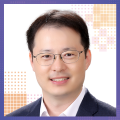
Dr. Jeongwon LEE is the Director of the Korea-Europe Quantum Science and Technology Cooperation Center (KE-QSTCC), where he leads initiatives to strengthen collaboration between Korea and Europe in the quantum technology ecosystem.
He holds an M.S. in Electronic Engineering and a Ph.D. in Technology Policy, with his doctoral research focusing on the effectiveness of government R&D subsidies.
With a background in radar system development in the defense sector, he has contributed to shaping Korea’s national ICT strategies, including those related to quantum technologies, artificial intelligence, and other emerging fields.
At the Institute of ICT Planning & Evaluation (IITP), Korea’s primary ICT funding agency, Dr. Lee served as the R&D coordinator for the Korea Quantum Flagship Project.
He has played a key role in fostering the national ecosystem for quantum communication and sensing.

Sofie Lindskov Hansen is Chief Quantum Expert in Denmark’s Office of the Tech Ambassador at the Ministry of Foreign Affairs. She holds a PhD in quantum physics from the Niels Bohr Institute and a medical physics degree from Rigshospitalet. Her career spans academia and industry—including R&D in nanophotonic quantum optics and roles at Sparrow Quantum and Kvantify—bridging deep science with real-world applications.
At the MFA, Sofie helps connect Denmark’s research strengths with allies and industry through the International Quantum Hub and supports Denmark’s quantum-specific MoUs with the United States (2022), the United Kingdom (2024), and Japan (2025). She also serves on the CEPS advisory board guiding Europe’s transition to a quantum-safe world. Her scientific background includes peer-reviewed work on integrated quantum photonics—such as single-photon routing in photonic circuits and waveguide-QED nonlinearity—and a doctoral thesis on single-photon manipulation in nanophotonic circuits.
Tomas Jakimavicius is a European Government Affairs Director at Microsoft. His main activities focus on Digital Infrastructure, Cloud, Quantum and Industrial regulatory policies impacting Microsoft and its customers’ use of and access to Microsoft’s products and services. Tomas has over 15 years of a wide-ranging senior level experience in both private and public sectors. In his career, he held leadership and advisory positions in trade associations and private sector companies and served as a diplomat at the Council of the European Union with a focus on EU digital regulatory policies.
A founding director of Cullen International in 1988, Philippe has worked extensively on EU regulation affecting the telecoms and internet sectors and the implementation at national level across Europe. He is widely regarded in the industry as one of the leading experts in the field. Philippe pioneered the practice of cross-country benchmarking of national regulation – the core methodology used across all of Cullen International’s intelligence services. He leads business development activities for the company – focussing on building Cullen International’s business outside of Europe, in particular in Latin America, the Middle East & North Africa. Philippe frequently presents Cullen International research at industry conferences, client briefings and training courses.
As Executive Vice-President for Tech Sovereignty, Security and Democracy, Henna Virkkunen is tasked with combatting the increasingly complex security threats facing the EU, whilst at the same time strengthening our external borders and our internal security. This goes hand in hand with her responsibility to ensure our freedoms, justice and democracy are strengthened too.
Axel Ferrazzini leads a consulting firm based in Brussels, specialised in quantum technologies and intellectual property rights. He heads the academic programme for the quantum computing and technologies major at EPITA, a leading engineering computer science school in Paris. He teaches innovation strategy at Bocconi University in Milan.
He is listed as an inventor on more than 20 patents and has contributed to standards development organisations for more than 20 years. Axel has served as an elected member of the ETSI Board since 2014 and of the Global Intellectual Property Alliance Board since 2022. He has been ranked in the IAM Strategy 300: The World’s Leading IP Strategists since 2022.

Mr Marc Lemaître is Director-General for Research and Innovation (DG RTD) since February 2023. He has extensive management experience at the European Commission as Director-General for Regional and Urban Policy (DG REGIO) from 2016 to January 2023, Director of the Office for Administration and Payment of individual entitlements (PMO) between 2013 and 2016, and previously Head of the Cabinets of the Commissioners responsible for Budget (2010 – 2013), and Regional Policy (2007 – 2010).
Before joining the Commission, he worked in the Permanent Representation of Luxembourg to the European Union, dealing with budgetary, trade and general affairs issues (1996 -2006).
Marc Lemaître studied at the Université Libre de Bruxelles (ULB), College of Europe in Bruges, and holds a Masters in European Economics.

As the head of the Secretariat of State for Science, Innovation, and Universities, Juan Cruz Cigudosa is responsible for overseeing the department’s competencies in science, innovation, and universities, as well as for developing policies related to these areas (Royal Decree 472/2024, of May 7, establishing the basic organizational structure of the Ministry of Science, Innovation, and Universities).
Juan has held various positions in the Government of Navarra, including Minister of University, Innovation, and Digital Transformation, as well as Minister of Economy and Finance.
He holds a PhD in Biological Sciences from the University of Navarra and has focused his research career on Human Genetics and its relationship with cancer and rare diseases since 1987. He has completed predoctoral and postdoctoral research stays in Lund (Sweden), Manchester (United Kingdom), and New York (USA). Additionally, he served as an associate specialist in the Canary Islands Health Service from 1997 to 2000.
Juan was Director of the Molecular Cytogenetics Group at the Spanish National Cancer Research Center (CNIO) from 2001 to 2017 and the founder and Chief Scientific and Innovation Officer at NIMGenetics, a Genomic Biotechnology company, from 2017 to 2019. He is also an honorary professor at both the Autonomous University of Madrid and the Complutense University of Madrid.
Juan has published over 170 articles in international scientific journals, has led national and international competitive research projects, and has supervised 12 doctoral theses. He has also been awarded the Best Young Researcher in Human Genetics Prize (1999), the Honorary Plaque of the Spanish Association of Scientists (2000), and the Academic Talent Award from Cinco Días newspaper (2013).
Freeke is a seasoned executive at the forefront of quantum and deeptech innovation. She has a proven track record of building ecosystems at the intersection of policy, academia, and industry. As co-founder and first director of Quantum Delta NL, the Dutch national quantum initiative, she spearheaded its €615M Ecosystem Approach, one of the largest public investments in quantum worldwide.
In 2024, she joined Qblox as part time Government Affairs Officer and was elected in May 2025 as Vice-President of QuIC. In parallel she launched an independent consultancy, advising leading organizations including NATO on quantum supply-chain vulnerabilities.
Beyond her executive roles, Freeke serves on advisory boards for the European Innovation Council (EIC) and OrangeQS, and is a two-term Co-Chair of a WEF Global Future Council.
As a trained Delft Systems Engineer, she was in senior leadership positions at the Dutch Ministry of Economic Affairs before dedicating herself to Europe’s quantum technology landscape.
The European Commission’s recently unveiled Quantum Strategy sets out an ambitious roadmap to position Europe as a global leader in quantum technologies by 2030. Structured around five key pillars, the Strategy outlines major initiatives, including the launch of the Quantum Europe research and innovation initiative, the creation of a quantum design facility, six pilot lines for quantum chips, a pilot facility for the European quantum internet, and the expansion of Quantum Competence Clusters across the EU. It also introduces the European Quantum Skills Academy, due to launch in 2026.
In this context, the session will explore how policy, regulation, and governance can underpin the development of a resilient, future-ready, and strategically autonomous quantum ecosystem. Panelists will assess the ambition and scope of the Strategy, evaluate whether its proposed actions are sufficient to meet Europe’s goals, and examine how these efforts can help realise the vision of Europe as the “Quantum Valley” of the world — a centre of excellence, innovation, and industrial strength in quantum science and technology.
Dr. Gustav Kalbe studied Applied Physics at the Université Catholique de Louvain, Belgium. In 1991 he studied Applied Optics at the Imperial College of Science in London. In 1995 he completed his studies and earned a PhD in Physics, Molecular Spectroscopy, at the UCL, Belgium.
He started his professional career as a project manager in photonic networks at the incumbent telecom operator in Belgium. He was R&D manager when he left the company.
In 1998 he joined the Directorate General Information Society & Media of the European Commission where he started working as Project Officer managing research projects of the European Framework Programs for Research. Over the years he had several assignments in quantum technologies, photonics, and cybersecurity.
In 2014 Gustav Kalbe became HoU for Administration & Finance in the European Commission, in DG Connect.
In 2016 he was appointed HoU of the newly created High Performance Computing and Quantum Technology unit in DG Connect.
In 2018 he became responsible for the establishment and operation of the European High Performance Computing Joint Undertaking. He occupied the post of Interim Executive Director of the JU until its autonomy by the end of 2020.
In January 2021, he was appointed Deputy to the Director of DG Connect C “Digital Excellence and Science Infrastructure”.
Since May 2022 Gustav is the Acting Director of DG Connect C “Digital Excellence and Science Infrastructure”.
Pierre is a Technical Director at IBM, in charge of strategic partnerships for IBM Quantum, mainly in Europe.
Pierre has more than 18 years of experience and began his career at the CEA in scientific computing and parallel codes, then at CSSI on the CEA’s scientific platforms. He then joined IBM Technology Services in 2006 to take on a role as IT Specialist for SNECMA, then IT Architect. His career then led him to IBM Systems, where he held the position of technical leader for Crédit Agricole. He then took over the management of the technical architects of IBM Systems France, before taking up the position of Technical Director of the IBM Systems France entity. Since June 2021, Pierre has been actively working on the development of IBM Quantum’s strategic partnerships, particularly in the areas of government, finance and chemicals.
Pierre graduated from Polytech Sorbonne in 2005, specialising in Mathematics and Computer Science.
Ivan Doboš is an IT leader with more than 30 years of experience in the IT sector, he holds the position of Technology Evangelist & Head of Quantum at Aricoma. He has worked in several leading IT companies in Slovakia and abroad and has extensive experience in team leadership, strategic planning and technology innovation. He has implemented IT solutions for major organisations and managed multi-million dollar programs and projects. Currently, he focuses on quantum computing, focusing on its practical application and popularisation.
Alexandra comes with 15 years of professional experience within the public sector, private sector and academia.
She is currently working at Pasqal – the global quantum computing leader based on neutral atoms technology – as the Global Public Policy Lead. In her role, she takes responsibility over Pasqal’s Public Affairs, Standardisation and Sustainability activities.
Alexandra previously worked as Chief Economist in the Cloud & Software Unit at the European Commission’s Directorate General for Communications Networks, Content and Technology (DG CONNECT). In that role, she took responsibility over the economic, competition, statistical, industrial and investment aspects of cloud computing. She notably acted as the Commission’s trusted advisor to guide 12 Member States and hundreds of companies from the data, cloud and software ecosystems to design and set-up the Important Project of Common European Interest on Next Generation Cloud Infrastructure and Services.
Prior to that, she worked at Accenture where she pursued strategic consultancy missions for more than 50 public administrations and local governments across Europe in which she specialised in the digital transformation of public services and cities.
Alexandra started her career as an academic and teaching fellow at the College of Europe, where her research focused on the use of European public funding to shape local policies in Spain, Italy and Portugal.
She graduated in Economics and Sociology and in European Affairs and Public Policy, from the London School of Economics (LSE), the College of Europe, Sciences Po. Paris and la Sorbonne.
Freeke is a seasoned executive at the forefront of quantum and deeptech innovation. She has a proven track record of building ecosystems at the intersection of policy, academia, and industry. As co-founder and first director of Quantum Delta NL, the Dutch national quantum initiative, she spearheaded its €615M Ecosystem Approach, one of the largest public investments in quantum worldwide.
In 2024, she joined Qblox as part time Government Affairs Officer and was elected in May 2025 as Vice-President of QuIC. In parallel she launched an independent consultancy, advising leading organizations including NATO on quantum supply-chain vulnerabilities.
Beyond her executive roles, Freeke serves on advisory boards for the European Innovation Council (EIC) and OrangeQS, and is a two-term Co-Chair of a WEF Global Future Council.
As a trained Delft Systems Engineer, she was in senior leadership positions at the Dutch Ministry of Economic Affairs before dedicating herself to Europe’s quantum technology landscape.
As quantum technologies transition from research to real-world deployment, leading European companies are beginning to apply quantum solutions to address complex industrial challenges. From pharmaceutical discovery and advanced materials to aerospace optimisation and financial modeling, businesses across sectors are exploring quantum computing, sensing, and secure communications to unlock new capabilities and competitive advantages.
Accordingly, this session will highlight concrete case studies of quantum adoption, providing a platform for users to share their strategies, milestones, and key lessons learned. Panelists will discuss how quantum is driving innovation and operational efficiency, while also confronting the major challenges of commercial scalability, investment, and an evolving regulatory environment. With Europe aiming to lead globally in quantum, the conversation will explore what is needed to support the transition from pilots to production, including industrial readiness, skills development, and enabling policy, and how businesses can future-proof themselves for the quantum age.
Dr. Gustav Kalbe studied Applied Physics at the Université Catholique de Louvain, Belgium. In 1991 he studied Applied Optics at the Imperial College of Science in London. In 1995 he completed his studies and earned a PhD in Physics, Molecular Spectroscopy, at the UCL, Belgium.
He started his professional career as a project manager in photonic networks at the incumbent telecom operator in Belgium. He was R&D manager when he left the company.
In 1998 he joined the Directorate General Information Society & Media of the European Commission where he started working as Project Officer managing research projects of the European Framework Programs for Research. Over the years he had several assignments in quantum technologies, photonics, and cybersecurity.
In 2014 Gustav Kalbe became HoU for Administration & Finance in the European Commission, in DG Connect.
In 2016 he was appointed HoU of the newly created High Performance Computing and Quantum Technology unit in DG Connect.
In 2018 he became responsible for the establishment and operation of the European High Performance Computing Joint Undertaking. He occupied the post of Interim Executive Director of the JU until its autonomy by the end of 2020.
In January 2021, he was appointed Deputy to the Director of DG Connect C “Digital Excellence and Science Infrastructure”.
Since May 2022 Gustav is the Acting Director of DG Connect C “Digital Excellence and Science Infrastructure”.
Mira Yossifova is a Bulgarian futurist and innovation policy expert who has dedicated nearly two decades to transforming strategic foresight into actionable government policies. Currently serving as the Director of Policy and Analysis at the Ministry of Innovation and Growth of Bulgaria, she stands at the intersection of technology, innovation, and strategic planning in shaping the country’s future.
With over 18 years of experience in governmental organizations, Yossifova has built her career around strategic foresight, innovation policy, and analytical research. Her professional journey includes significant roles across multiple Bulgarian institutions, including positions at the National Employment Agency, Ministry of Culture, and State Agency for Research and Innovation, before ascending to her current leadership role in the innovation sector.
Since November 2021, she has focused specifically on innovation policy, where her responsibilities encompass writing strategic analyses, conducting assessments, and implementing governmental strategic foresight projects. Her work involves crafting strategies that prepare Bulgaria for future technological and economic challenges while fostering an environment for sustainable growth.
As CEO of OQC, Gerald spearheads the company vision, mission and values through the delivery of strategic objectives and ensuring shareholder value. Gerald has spent two decades delivering technology solutions for customers across life sciences, financial services, energy and defence at leading companies including Accenture and PwC. He was also a Director at the UK Prime Minister’s Office and Cabinet Office, working on security related projects; a position he held for 8 years.

Lene joined the Novo Nordisk Foundation in 2019 to establish and lead activities in the Nat-Tech area covering the natural- and technical sciences, this including activities relating to quantum technologies and artificial intelligence. She has a background as a Professor of physics, Niels Bohr Institute (NBI) at Copenhagen University (~20 years).
Lene is a physicist, trained also in mathematics. She is an experimentalist and at the Niels Bohr Institute she constructed the first optical tweezers manipulation facility in Scandinavia. She is an expert in the interphase between quantum and the life sciences and is key designer of the Novo Nordisk Foundation Quantum Computing Programme, of the Quantum Foundry Copenhagen, as well as of the AI and quantum dedicated super-compute facilities Gefion and Magne, respectively. As a researcher, she has been the leader of several interdisciplinary large-scale research projects, including center leader of a Grundforskningsfond Center of Excellence. She has received several research prizes, e.g., the Danish Optical Society prize for young investigators, the Silver Medal of the Danish Royal Academy of Sciences and Letters, and the Elite Research Prize from the Danish Research Councils, the largest Danish public research prize. Lene Oddershede is a member of the Danish Academy of Technical Sciences, of the Danish Royal Academy of Sciences and Letters, and of the Global Future Council for quantum economy at the World Economic Forum (WEF).
PhD in physics from SDU, Odense, Denmark 1998.

Pierre Desjardins, co-founder and CEO, Managing Director. He is a graduate of École Polytechnique and Columbia University in New York (Master of Science in quantum physics obtained in 2013). He has worked as a research assistant at MIT’s Quantum Photonics Lab. From 2014 to 2020, he was a strategy consultant at Roland Berger, a global consulting firm. He managed or participated in over 40 projects, advising companies and investment funds on strategic and operational assignments.
Johannes is CEO and founder of QBN, the Global Industry Network for quantum technologies. He is also an active advisor and investor, and has been awarded as Best Ambassador for EU Sovereignty. With a robust background in deeptech, quantum physics and applied R&D, a wealth of experience in company and ecosystem building as well as international cluster management, Johannes plays a pivotal role in bridging the gap between industry, science and policy and leverages his expertise and global network to drive the societal and economic impact of quantum!
Andrea G. Rodríguez is Director for Quantum Technologies at Adigital, the Spanish Digital Economy Association. She is also Acting Chair of the Governance Board at IMPAQT, a quantum computing consortium based in Delft, The Netherlands. Andrea is also an Associate Research Fellow in the GRID Unit at CEPS. She participates in many advisory and working groups at different organisations, such as NATO STO.
As the European Union accelerates its leadership in next-generation technologies, quantum communication is emerging as a strategic pillar for advancing cybersecurity, digital resilience, and technological sovereignty. Central to this ambition is the European Quantum Communication Infrastructure (EuroQCI), a flagship initiative aimed at deploying a secure, pan-European quantum communication network that integrates both terrestrial fibre-based Quantum Key Distribution (QKD) systems and satellite-based quantum links.
This session will examine the evolving landscape of quantum communication in Europe, with a particular focus on EuroQCI and its role within the broader EU Quantum Strategy. Panelists will explore the progress made to date, remaining priorities, and the policy frameworks guiding the development of secure, resilient, and scalable quantum communication infrastructure.
Bio to follow.
From France, Mr Jaffart has over 20 years of experience in the European space sector.
Mr Jaffart graduated from the University of Brighton in the UK in 2000 with an honours degree in European business and technology, then gained dual Masters in Business Administration degrees from the former ESC Reims (Reims Management School in France) and Dublin City University. In 2012, Mr Jaffart was awarded a Masters degree in military national resource strategy and policy from the Industrial College of the Armed Forces (now Eisenhower School) at the National Defence University in Washington DC.
Before joining ESA, Mr Jaffart worked for Airbus Defence and Space as Vice-President and Head of Strategy, Corporate and New Business Development in Space Systems, leading a trans-national team based in France, Germany and the UK. He simultaneously served as a member of the Space System Executive Board and as a member of the Airbus OneWeb Satellites Board.
Previously, Mr Jaffart worked in various roles at the European Aeronautic Defence and Space Company (EADS), that went on to become part of Airbus Defence and Space in 2015. These included notably Vice-President and Head of Sales & Marketing Business Growth for Space Systems, Head of Strategy at Astrium Satellites (a subsidiary of EADS) based in Ottobrun, Germany, where he was responsible for the OneWeb bid for the first generation of the constellation and the creation of the joint-venture Airbus OneWeb Satellites.
As Director of Connectivity and Secure Communications, Mr Jaffart will be responsible for ESA’s satellite telecommunication programmes, namely the implementation of the full portfolio of ARTES 4.0 projects in partnership with European and Canadian industries and operators and developing the programme’s commercial nature.
He will also be responsible for strategic programme lines related to 5G/6G non-terrestrial network integration, secure communications, and quantum/optical technologies and for the new portfolio of programmes approved at the ESA Ministerial Council in 2022, namely the ESA contribution to EU Secure Connectivity Programme IRIS2, Moonlight, and Civil Security from Space.
With over 15 years of work experience in the ICT industry, Sarmīte is a Senior Expert in Digitalisation at the Ministry of Education and Science of Latvia, where she leads and coordinates the implementation of the national digital transformation strategy in the higher education and research sector. Sarmīte is Chair of the States Representatives Group of the Smart Networks and Services Joint Undertaking, a public-private partnership that aims to accelerate the development and deployment of 5G and 6G technologies in Europe.
She represents Latvia on the EuroHPC JU Governing Board and has contributed to the EU Quantum Strategy Working Group, supporting Europe’s long-term vision for quantum technologies. In Latvia, she has been instrumental in developing advanced digital skills programs for quantum technologies, bridging education, research, and industry needs. Through her work at the intersection of policy, science, and innovation, Sarmite is committed to strengthening Europe’s competitiveness and building a resilient ecosystem for digital and quantum technologies.
Sarmīte has published several papers on CRM, ICT industry competitiveness, and digitalisation. She is passionate about learning new things, exploring new opportunities, and making a positive impact in the world.
Jan Ellsberger is a globally recognised leader in the ICT industry with more than 30 years of experience with research and innovation, industry ecosystem development, standardisation, policy development & regulation, and strategy development in the telecommunications and automotive industries. From 2000-2012 he was leading Ericsson’s global standardisation operations. He has also served in leading positions in several industry associations such as 3GPP, 5GAA, ERTICO and the Horizon Europe CCAM Association.
Tommaso Occhipinti is Co-founder & CEO of QTI – Quantum Telecommunications Italy, a Telsy’s company within the TIM Group specialising in the development of quantum devices for quantum-safe networks. He started his career (2002) in the academic research field of quantum astronomy and quantum communications (PhD in Telecommunication Engineering, Padova University). In the following years, he started his business career founding innovative start-ups and, in 2020, he was among QTI co-founders. As CEO of QTI, he defines the company’s strategic direction, ensuring organizational unity and operational coherence. He represents QTI before institutional and industrial stakeholders and partners, with the goal of promoting the adoption of quantum-resistant security solutions, in particular Quantum Key Distribution (QKD), in strategic market segments and among public institutions.
Sapphire works at the intersection of telecoms and quantum, developing technical and commercial use cases for quantum technologies in the telco ecosystem. She has a PhD in quantum theory, where she explored the mathematics of open quantum systems and investigated ways to extend the lifetime of useful quantum effects. She then spent several years as a consultant building network models for telco strategy projects including mergers, spectrum acquisitions, and network sharing agreements, as well as writing and researching white papers on spectrum, satellite, and entrant operator policy. She is excited by the potential offered by widespread quantum communication infrastructure – enabling use cases not only for telcos, but across a wide range of sectors including healthcare, logistics, and research.
SAGA Phase B2 contract signature event. The contract will be signed by Mr. Antonio Sturiale, Director of Domain Telecommunication Italy at Thales Alenia Space, and Mr. Laurent Jaffart, Director of Connectivity and Secure Communications at ESA, in the presence of Mr. Aymard de Touzalin, Head of Unit, Emerging & Disruptive Technologies at DG CNECT, European Commission.
Secure And cryptoGrAphic (SAGA) is a quantum key distribution space mission set to become part of the wider European Quantum Communication Infrastructure (EuroQCI) project, launched by the European Commission, which aims to provide end-to-end ground and space secure quantum communication infrastructure to EU Member State governments.
As quantum computing continues to advance, it brings both unprecedented challenges and transformative opportunities for cybersecurity. While still in its early stages, the emergence of cryptographically relevant quantum computers (CRQCs) raises concerns about their potential to break widely used encryption methods, enabling threats such as ‘harvest now, decrypt later’ attacks and authentication vulnerabilities. At the same time, quantum technologies offer solutions to fortify cybersecurity, with innovations such as Quantum Key Distribution (QKD), Post-Quantum Cryptography (PQC), and Quantum Random Number Generation (QRNGs) paving the way for a more resilient digital infrastructure. Following the release of the ‘Coordinated Implementation Roadmap for the Transition to Post-Quantum Cryptography’,
this panel will explore the dual impact of quantum computing on cybersecurity, addressing both the risks and the safeguards required to ensure long-term cyber resilience.
Dr. Fabiana Da Pieve works as Programme Manager at the European Commission, DG CONNECT, in the Unit “Emerging and Disruptive Technologies”, where she focuses on both post-quantum cryptography and quantum communications, designing work programmes and policy initiatives. She has 19 years experience in fundamental research, on problems related to the entanglement, many-body physics, and, in the last part of her academic career, space missions. She also had an education in cryptography and worked in the past on the cryptographic tests of the Galileo Public Regulated Service. She is strongly involved in designing new initiatives to facilitate the EU transition to PQC, for both deployment actions and fundamental research for new applications and cryptanalysis, and she is strongly involved in the work of PQC workstream of the NIS cooperation group on setting the path for a coordinated transition across the whole EU. For quantum communications, she designs new activities in the context of EuroQCI, both for the ground and space segment, also beyond the sole key exchange functionality to facilitate the path towards future broader scope quantum networks.
Samih Souissi is currently the Chief of Staff of the Expertise Department of the French National Cybersecurity Agency (ANSSI). He leads ANSSI’s work on the transition to post-quantum cryptography (PQC).
Before joining ANSSI, he was a policy officer at the French telecom regulator (Arcep) focusing on Open Internet issues. Prior to that, he worked as a cybersecurity consultant and a research engineer.
Besides, he is actively engaged with the internet governance and cybersecurity community, serving on the scientific council of Afnic (the French NIC) and the scientific committee of Internet Society France.
Samih holds a MSc in engineering and a PhD in computer science and networks with a focus on cybersecurity from Telecom Paris. He is also a graduate of University of London-LSE in international relations.

Elena Kaiser works as Deputy Head of EU Cybersecurity Strategy and Policies Division at the Italian National Cybersecurity Agency.
In her role, she contributes to the development and analysis of EU cybersecurity policies, ensuring alignment with national interests and regulations, and she represents the Agency in relevant EU working groups.
Before that, she was the Legal Advisor of the Cybersecurity Agency of the Ministry of Economy of Luxembourg.
Elena holds a Ph.D. in Public, International and European Law and is qualified to practice law in Italy.

Dr Eva Martín Fierro is the Head of Innovation at Qilimanjaro Quantum Tech, where she leads the management of innovative quantum computing solutions. With over a decade of experience in theoretical physics research and 15 years in technology transfer, Eva has a proven track record of translating scientific ideas into business opportunities that meet market needs. She holds a PhD in Physics and has completed Executive Development Program at IESE Business School. Her international experience includes research positions as postdoc at the Weizmann Institute of Science in Israel and Freiburg University in Germany.
In her role as Head of Innovation, she leads key strategic functions spanning the definition and management of Qilimanjaro’s Intellectual Property strategy, the development of product and go-to-market strategies, the strengthening of competitive positioning and differentiation, and the identification of funding opportunities. She also plays an active role in representing the company within relevant innovation ecosystems, contributing to dialogues and initiatives across the public and private quantum sectors.
Enrico is a cybersecurity professional in financial services specialising in application security. At EY, he helps teams build and run secure software by embedding security into the SDLC, leading threat modelling, and driving remediation of vulnerabilities that put sensitive data at risk.
With a strong interest in quantum resilience, Enrico works with EY clients to get ready for the post-quantum era by performing crypto‑agility tests, building cryptographic inventories, and exploring pilots of post‑quantum cryptography in various applications. He actively tracks the European Commission’s Recommendation on the transition to PQC, the NIS Cooperation Group’s Coordinated Implementation Roadmap & NIS2, translating policy into practical migration roadmaps and setting vendor requirements.
Current priorities include reducing “harvest now, decrypt later” exposure, modernising key management and aligning security, infrastructure on quantum‑ready standards.
As the United Nations (UN) International Year of Quantum progresses, quantum technologies continue to gain prominence as a strategic priority for nations worldwide, with significant investments in research, development, and commercialization. Given the complex nature of these technologies, alongside supply chain challenges, high costs, and evolving standards, it seems likely that global collaboration will prove key to unlocking the full potential of quantum technologies. Accordingly, this session will explore Europe’s position within the global quantum ecosystem, addressing how the bloc can balance international cooperation with digital sovereignty ambitions. Panelists will examine the importance of trade partnerships, supply chain security, export controls, and regulatory frameworks, as well as how Europe can engage with international stakeholders, including developing economies, to drive quantum innovation forward.
Elizabeth Thomas-Raynaud is Head of the Emerging Digital Technologies unit of the Science, Technology and Innovation Directorate at the OECD (Organisation for Economic Co-operation and Development).
A dual citizen of Canada and France, Elizabeth joined OECD in 2020 as Head of Secretariat for the newly announced Global Partnership on Artificial Intelligence (GPAI). More recently, she was tasked with launching the Global Forum on Technology (GFTech), a multistakeholder platform for anticipatory dialogue on the long-term opportunities and risks of emerging technologies. In 2023, GFTech identified quantum technologies as a key focus area. Its expert focus group on quantum technologies brings together 49 experts from 26 nationalities, whose deliberations complement the policy activities of the OECD Policy Committees. More information on the work is available here.
Prior to the OECD, Elizabeth directed digital economy policy at the International Chamber of Commerce (ICC), leading global business engagement at the UN, G20, APEC and others on issues such as Internet and telecoms, cybersecurity, privacy, and digital trade.
She studied International Economics and Political Science at the University of British Columbia, in Canada for her Bachelor of Arts and pursued a Master of Arts at City, University of London, in the UK. Executive follow-up studies include, MIT Sloan and CSAIL’s AI programme; Singularity’s Emerging Technology programme and the European Space Agency’s Space law course, with more surely to come.
Josh Fedder serves as Deputy Head of the UK Office for Quantum, a pioneering unit established in 2023 under the Department for Science, Innovation & Technology. He oversees the Office’s international engagement, regulation and national security portfolios, shaping interoperable approaches to quantum while building trusted partnerships with like‑minded nations. Josh focuses on aligning roadmaps, de‑risking critical supply chains, and translating complementary capabilities across ecosystems into shared advantage—driving economic growth and safeguarding national security.

Dr. Jeongwon LEE is the Director of the Korea-Europe Quantum Science and Technology Cooperation Center (KE-QSTCC), where he leads initiatives to strengthen collaboration between Korea and Europe in the quantum technology ecosystem.
He holds an M.S. in Electronic Engineering and a Ph.D. in Technology Policy, with his doctoral research focusing on the effectiveness of government R&D subsidies.
With a background in radar system development in the defense sector, he has contributed to shaping Korea’s national ICT strategies, including those related to quantum technologies, artificial intelligence, and other emerging fields.
At the Institute of ICT Planning & Evaluation (IITP), Korea’s primary ICT funding agency, Dr. Lee served as the R&D coordinator for the Korea Quantum Flagship Project.
He has played a key role in fostering the national ecosystem for quantum communication and sensing.

Sofie Lindskov Hansen is Chief Quantum Expert in Denmark’s Office of the Tech Ambassador at the Ministry of Foreign Affairs. She holds a PhD in quantum physics from the Niels Bohr Institute and a medical physics degree from Rigshospitalet. Her career spans academia and industry—including R&D in nanophotonic quantum optics and roles at Sparrow Quantum and Kvantify—bridging deep science with real-world applications.
At the MFA, Sofie helps connect Denmark’s research strengths with allies and industry through the International Quantum Hub and supports Denmark’s quantum-specific MoUs with the United States (2022), the United Kingdom (2024), and Japan (2025). She also serves on the CEPS advisory board guiding Europe’s transition to a quantum-safe world. Her scientific background includes peer-reviewed work on integrated quantum photonics—such as single-photon routing in photonic circuits and waveguide-QED nonlinearity—and a doctoral thesis on single-photon manipulation in nanophotonic circuits.
Tomas Jakimavicius is a European Government Affairs Director at Microsoft. His main activities focus on Digital Infrastructure, Cloud, Quantum and Industrial regulatory policies impacting Microsoft and its customers’ use of and access to Microsoft’s products and services. Tomas has over 15 years of a wide-ranging senior level experience in both private and public sectors. In his career, he held leadership and advisory positions in trade associations and private sector companies and served as a diplomat at the Council of the European Union with a focus on EU digital regulatory policies.
A founding director of Cullen International in 1988, Philippe has worked extensively on EU regulation affecting the telecoms and internet sectors and the implementation at national level across Europe. He is widely regarded in the industry as one of the leading experts in the field. Philippe pioneered the practice of cross-country benchmarking of national regulation – the core methodology used across all of Cullen International’s intelligence services. He leads business development activities for the company – focussing on building Cullen International’s business outside of Europe, in particular in Latin America, the Middle East & North Africa. Philippe frequently presents Cullen International research at industry conferences, client briefings and training courses.
As Executive Vice-President for Tech Sovereignty, Security and Democracy, Henna Virkkunen is tasked with combatting the increasingly complex security threats facing the EU, whilst at the same time strengthening our external borders and our internal security. This goes hand in hand with her responsibility to ensure our freedoms, justice and democracy are strengthened too.
Axel Ferrazzini leads a consulting firm based in Brussels, specialised in quantum technologies and intellectual property rights. He heads the academic programme for the quantum computing and technologies major at EPITA, a leading engineering computer science school in Paris. He teaches innovation strategy at Bocconi University in Milan.
He is listed as an inventor on more than 20 patents and has contributed to standards development organisations for more than 20 years. Axel has served as an elected member of the ETSI Board since 2014 and of the Global Intellectual Property Alliance Board since 2022. He has been ranked in the IAM Strategy 300: The World’s Leading IP Strategists since 2022.
Applies to: Corporate Organisations, Trade Associations, Law Firms
Applies to: NGO, Not for Profit / Charity, Academic / Student
Applies to: European Commission / Parliament / Council, National Government / Regulator, Diplomatic Missions to the EU, Permanent Representations to the EU, Accredited Journalists
* Fees do not include Belgian VAT @ 21%, and this amount will be added to the total price when you are invoiced.
Please note that all registrations are subject to review by the organisers. The organisational categories listed reflect the most common participant profiles from previous editions and may not cover every individual circumstance. If you are unsure which category applies to you, please contact us via the Contact section before completing your registration. Selecting an incorrect category may delay or prevent confirmation of your place at the event. We are always happy to assist to ensure the correct category is selected.
To discuss sponsorship and visibility opportunities at the 2025 Quantum Europe Conference, please contact Anne-Lise Simon at quantum@forum-europe.com, or +44 (0) 7389 702 584.
Your organisation can contribute to the discussion
Engage in a fully immersive and interactive debate with decision makers, businesses and policymakers
Convey your message to a broad and international audience
Connect with your fellow attendees during coffee and lunch breaks throughout the event
Ensure maximum visibility through branding in the room, on the event website and marketing activities

 Platinum Sponsor
Platinum Sponsor At IBM, we do more than work. We create. We create as technologists, developers, and engineers. We create with our partners. We create with our competitors. If you’re searching for ways to make the world work better through technology and infrastructure, software and consulting, then we want to work with you. We’re here to help every creator turn their “what if” into what is. Let’s create something that will change everything.
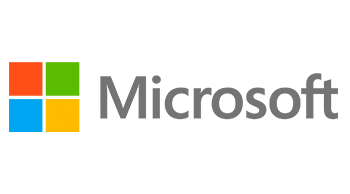
 Platinum Sponsor
Platinum Sponsor Every company has a mission. What’s ours? To empower every person and every organisation to achieve more. We believe technology can and should be a force for good and that meaningful innovation contributes to a brighter world in the future and today. Our culture doesn’t just encourage curiosity; it embraces it. Each day we make progress together by showing up as our authentic selves. We show up with a learn-it-all mentality. We show up cheering on others, knowing their success doesn’t diminish our own. We show up every day open to learning our own biases, changing our behaviour, and inviting in differences. When we show up, we achieve more together. Microsoft operates in 190 countries and is made up of more than 220,000 passionate employees worldwide.

 Platinum Sponsor
Platinum Sponsor The TIM Group is driving the digital transition of Italy and Brazil with innovative technologies and services because they want to contribute to accelerating the sustainable growth of the economy and society by bringing value and prosperity to people, companies and institutions.
They offer diversified solutions that meet the needs of their stakeholders while also integrating climate strategy, circular economy and digital growth targets.
TIM offers fixed and mobile telephony services and products for communication and entertainment for individuals and households, and supports small and medium-sized enterprises in their path towards digitalisation with a portfolio tailored to their needs.
Cloud, IoT and Cybersecurity technologies are at the heart of TIM Enterprise‘s End-to-End solutions for companies and the public institutions that support the country’s digital transformation by making use of the largest data centre network in Italy, the expertise of Group companies such as Noovle, Olivetti and Telsy, and partnerships with leading industrial groups.
They develop 4G and 5G mobile network and fibre network infrastructure internationally through Sparkle.
In Brazil, TIM Brasil is a major player in the South American communications market and a leader in 4G and 5G coverage.
They also support projects of high social interest via TIM Foundation in Italy and Instituto TIM in Brazil.
The values that both unite and distinguish them are passion and courage, which help them to seize the challenges of the market, inclusion, because it creates value for the entire society, and finally integrity, to deserve and maintain the trust of their stakeholders.

 Silver Sponsor
Silver Sponsor Aricoma is the largest provider of enterprise IT services and solutions in the Czech market. We are built on a solid foundation that reflects more than three decades of growth. Behind our success, you will find the ability to respond to market developments, a cohesive team of professionals with many years of experience, and a unique comprehensive portfolio of services and solutions.
We can address challenges in advanced IT infrastructure, across a broad portfolio of enterprise applications and digital solutions to support today ́s Digital Governments, and in cloud migration and cybersecurity.
We are part of the strong international investment group KKCG. We want to continue to grow in our domestic markets, and strengthen our cooperation with the EU institutions and our position in Western European markets.
We believe it is our duty to share our success. We therefore support organizations that are dedicated to people in need, but also support values such as freedom and democracy.
We understand not only technology, but also the processes and the legislative framework.

 Silver Sponsor
Silver Sponsor C12 is on a mission to build reliable quantum computers to speed up highly complex computing tasks, thanks to a unique technology developed at CNRS and the Physics Laboratory of the Ecole Normale Supérieure in Paris. In January 2020, twin brothers Matthieu and Pierre Desjardins officially launched the company. Since then, the company has raised >25m€ and has grown to a senior & international 45-people team, cumulating years of experience in quantum electronics.
C12 is convinced that only a materials science breakthrough will enable large-scale quantum computers. Unlike other quantum computers, we use carbon nanotubes as the fundamental building block of our processor. By combining the power of an ultra-pure material with an easy-to-manufacture semiconductor device, we are building the next generation of quantum computers, designed to provide unparalleled fidelity, connectivity, and scalability. Our first quantum co-processor will be able to run hybrid quantum-classical algorithms for chemistry applications by 2025.

 Silver Sponsor
Silver Sponsor Oxford Quantum Circuits (OQC) is pioneering the quantum-accelerated world, delivering enterprise-grade quantum systems designed for commercial and strategic advantage. As Europe’s first Quantum-Compute-as-a-Service provider – and the only company integrating quantum in commercial data centres – OQC brings quantum capability to the heart of financial and national infrastructure. Their application-optimised compute empowers customers in finance, security, and defence to solve intractable problems: reshaping industries and strengthening sovereign advantage.

 Silver Sponsor
Silver Sponsor Quantum computing is a small world. We make it big. With Nobel Prize-winning technology and a holistic approach, Pasqal uses neutral atoms to address real-world industrial cases. Pasqal provides cutting-edge quantum technology to customers and partners worldwide.
Many people call quantum computing “the next big thing.” We believe it’s already huge. At Pasqal, we’ve spent four decades leading and mapping the revolution so you can power up the next phase of your development. We have the state-of-the-art technology, the methodology and the people so businesses can tackle the big challenges that will define this new era – starting now.

 Silver Sponsor
Silver Sponsor Qilimanjaro is a full-stack quantum computing company based in Barcelona, founded in 2019 to maximise current technological capabilities and deliver a practical quantum advantage within a shorter time frame through a unique strategy. Our technological innovation is based on the analog model of quantum computation, leveraging high-quality superconducting flux qubits and versatile qubit-qubit interactions to build application-specific quantum solutions. We follow a co-design approach that brings the design of the quantum chip closer to the use case. Our offering includes an exclusive hybrid Quantum as a Service model, enabling remote access to our distinctive analog quantum computing platforms, digital quantum computers, and classical simulators. This is complemented by a boutique service for tailored algorithm design. We also offer deployment and integration of in-premises quantum computers for HPC centers and client facilities as well as exploratory services for companies seeking to assess how quantum computing can support their business needs and identify use cases.
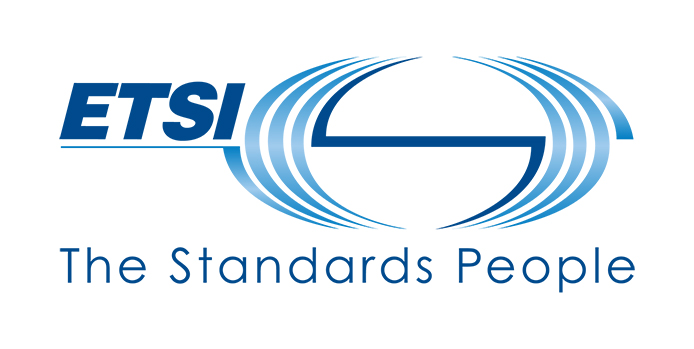
 Supporting Partner
Supporting Partner ETSI provides members with an open and inclusive environment to support the development, ratification and testing of globally applicable standards for ICT systems and services across all sectors of industry and society. We are a not-for-profit body with more than 900 member organizations worldwide, drawn from more than 60 countries and five continents. Members comprise a diversified pool of large and small private companies, research entities, academia, government and public organizations. ETSI is officially recognized by the EU as a European Standards Organization (ESO).

Founded in 2020, QBN represents over 100 members, including world-leading startups, SME, global players, research organisations, investors and government organisations.
Our members build software and hardware solutions, components and applications, offer R&D, infrastructure and investments, all in the fields of quantum computing, sensing, communication, cybersecurity or enabling technologies such as photonics or diamond technology. An increasing number of vendors, providers, end-users, and other stakeholders are joining our network to explore the potential of the quantum industry.
The overriding aim of QBN, as the premium partner for business leaders, is to make quantum a global industrial powerhouse, drive the quantum transformation of the economy and drive economic growth.
As a one-stop-shop for enterprises, entrepreneurs, researchers and policymakers the main foci are the accelerated scalability and adoption of quantum computing, the transfer of quantum sensing into real-world applications, the integration of quantum communication and cybersecurity in critical infrastructure and the expansion of quantum networks towards the quantum internet. It’s about the promotion of collaboration, the support of commercialization, fast access to investments and shaping of strategic policies.
Complementarily, QBN offers consultancy services to help enterprises, governments and investors become quantum-ready and develop their quantum strategy, and to support startups in preparing for growth and scaling. QBN’s holistic approach ensures its clients tailored support towards strategic and operational excellence.
Quantum technologies are more than an economic driver, they are enabling breakthroughs in energy, healthcare, and beyond, being a catalyst for a secure, sustainable, and resilient future.
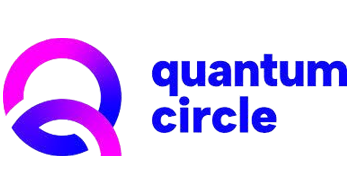
 Supporting Partner
Supporting Partner Quantum Circle unites all stakeholders in quantum computing, communication and sensing under one roof.
Quantum Circle advocates the game-changing potential of quantum technologies, collaborating on innovative use cases, cultivating expertise and igniting rapid adoption in the commercial realm.
Quantum Circle wants to establish the foundation for a visionary investment climate that will leave a lasting impact on the technological landscape.
The Hotel Brussels
quantum@forum-europe.com
Sign up to receive our newsletter
© 2026 All Rights Reserved.